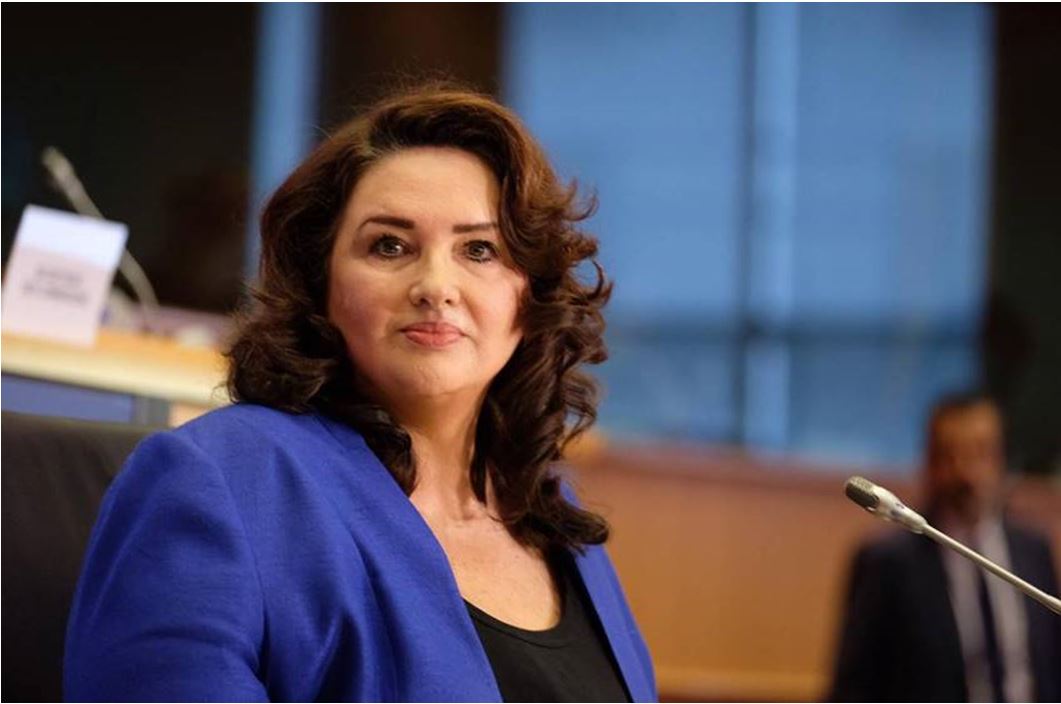 Helena Dalli
Helena Dalli
1996-present: Member of Parliament,
2017-2019: Minister for European Affairs and Equality ,
2013-2017: Minister for Social Dialogue, Consumer Affairs and Civil Liberties,
1998-2013: Opposition Shadow Minister for public administration, equality, public broadcasting and national investments , 1996-1998: Parliamentary Secretary for Women's Rights in the Office of Prime Minister, Lecturer, University of Malta (Faculty of Arts, Faculty of Economics, Management and Accountancy) PhD in Political Sociology, University of Nottingham B.A. (Hons) in Sociology, University of Malta
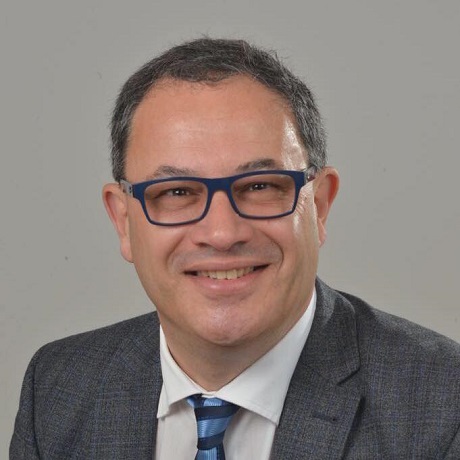 Hon. Anthony Agius Decelis was born in Pietà on 23rd October 1967. He received his formal education at the Government Primary School in Naxxar and later, in 1992, graduated with Honours from the University of Malta in Youth and Community Studies in Informal Education. He continued his studies with a Post Graduate Diploma in Health Management and later obtained a Master’s degree in Gerontology & Geriatrics. Throughout his career, he worked in the Health Care Department, specifically in the PSG Cat-Lab. On 20th May 1989, he married Josette nee’ Vella and is a father of three: Danika, Ann Marie and Jeanine. Since a young age, he had particular interest in current affairs and occupied various roles within the Partit Laburista youth forum. Hon. Decelis was elected Member of Parliament in Malta in 2008. He contested successfully again in 2013 and 2017. In the latter legislature, he was appointed Parliamentary Secretary for Persons with Disability and Active Ageing whilst in the former legislature he served as the Commissioner for Simplification and Reduction of Bureaucracy.
Hon. Anthony Agius Decelis was born in Pietà on 23rd October 1967. He received his formal education at the Government Primary School in Naxxar and later, in 1992, graduated with Honours from the University of Malta in Youth and Community Studies in Informal Education. He continued his studies with a Post Graduate Diploma in Health Management and later obtained a Master’s degree in Gerontology & Geriatrics. Throughout his career, he worked in the Health Care Department, specifically in the PSG Cat-Lab. On 20th May 1989, he married Josette nee’ Vella and is a father of three: Danika, Ann Marie and Jeanine. Since a young age, he had particular interest in current affairs and occupied various roles within the Partit Laburista youth forum. Hon. Decelis was elected Member of Parliament in Malta in 2008. He contested successfully again in 2013 and 2017. In the latter legislature, he was appointed Parliamentary Secretary for Persons with Disability and Active Ageing whilst in the former legislature he served as the Commissioner for Simplification and Reduction of Bureaucracy.
%20May%20-%20Profile%20Photo.jpg) Ms. May Agius currently works as a Speech and Language Therapist with ACTU (Access to Communication and Technology Unit). Her interests include the use of AAC (Augmentative and Alternative Communication) systems to support children with special needs to communicate. May is currently in the final stages of her PhD which she is reading for at Manchester Metropolitan University in the UK. Her current research focuses on factors which influence the clinical decision making process for children who require AAC systems and have a diagnosis of Autism Spectrum Disorder. She has presented her research at the last three international ISAAC conferences and has been published in the journal AAC. She is particularly interested in supporting the development of AAC systems for children who require communication systems in Maltese and is currently working with the Association of Speech and Language Pathologists on a project to realise this. May is also interested in how assistive technology can be used to support speech and language therapists in their day to day work. May also lectures at the University of Malta.
Ms. May Agius currently works as a Speech and Language Therapist with ACTU (Access to Communication and Technology Unit). Her interests include the use of AAC (Augmentative and Alternative Communication) systems to support children with special needs to communicate. May is currently in the final stages of her PhD which she is reading for at Manchester Metropolitan University in the UK. Her current research focuses on factors which influence the clinical decision making process for children who require AAC systems and have a diagnosis of Autism Spectrum Disorder. She has presented her research at the last three international ISAAC conferences and has been published in the journal AAC. She is particularly interested in supporting the development of AAC systems for children who require communication systems in Maltese and is currently working with the Association of Speech and Language Pathologists on a project to realise this. May is also interested in how assistive technology can be used to support speech and language therapists in their day to day work. May also lectures at the University of Malta.
 Mr. Shadi Abou-Zahra works with the W3C Web Accessibility Initiative (WAI) as the Accessibility Strategy and Technology Specialist. He coordinates accessibility priorities in the W3C Strategy team, as well as international promotion, coordination, and harmonization of web accessibility standards. Shadi also maintains WAI liaisons with key stakeholders including disability, research, and standards organizations, as well as coordinates WAI outreach in Europe, accessibility evaluation techniques, and European-funded projects on accessibility.
Mr. Shadi Abou-Zahra works with the W3C Web Accessibility Initiative (WAI) as the Accessibility Strategy and Technology Specialist. He coordinates accessibility priorities in the W3C Strategy team, as well as international promotion, coordination, and harmonization of web accessibility standards. Shadi also maintains WAI liaisons with key stakeholders including disability, research, and standards organizations, as well as coordinates WAI outreach in Europe, accessibility evaluation techniques, and European-funded projects on accessibility.
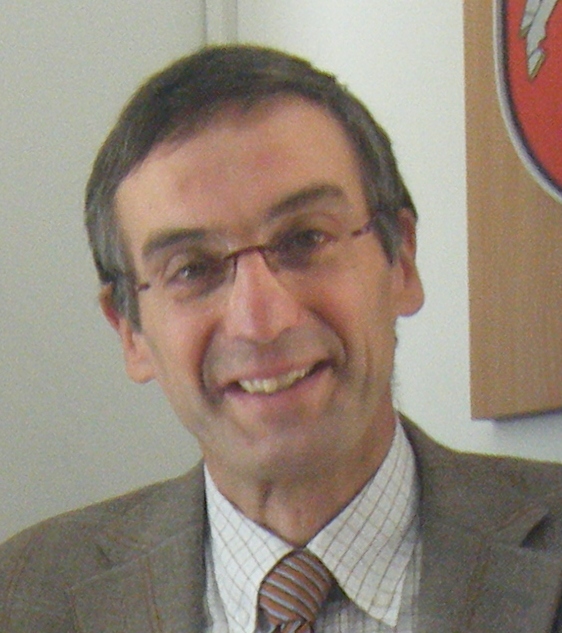 Mr Renzo Andrich, MSc.
Mr Renzo Andrich, MSc.
Background in Electrical Engineering. Since 1981 until 2018 he worked at the Don Carlo Gnocchi Foundation in Milano, Italy (a non-for-profit organization operating a large network of care and rehabilitation Centres), leading research and innovation programs in the area of assistive technology, and participating as researcher or project leader in over 20 international and 30 national projects. He led the SIVA network (Assistive Technology Assessment and Information Services), the SIVA Web Portal (the Italian national assistive technology information system) and a wide range of educational activities. Now he continues working in the assistive technology area as independent consultant, in research and educational programmes. He chaired the AAATE (Association for the Advancement of Assistive Technology in Europe) in 2002-2003 and since 2006 he chairs the Global Assistive Technology Information Network (EASTIN).
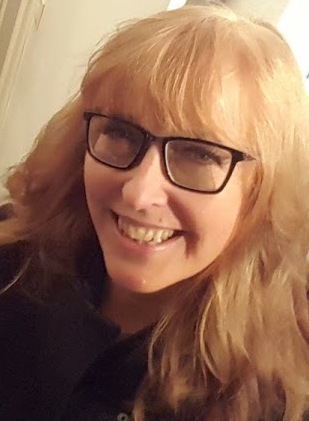 Ms. Mia Ahlgren is the human rights and disability policy officer at the Swedish Disability Rights Federation, representing the national umbrella for organisations of persons with disabilities. She has been an active in the network for ICT and emerging technologies of the European Disability Forum since 2003. She is also a member of the Swedish Standards Consumers and Workers Council that promotes and fund NGO participation in standardisation. Mia has been an expert in standardisation activities such as the ITU Focus Group on Media Accessibility, ISO20400 Sustainable Procurement, European mandates 376 e-Accessibility and 473 Design for all as well as the new ISO Strategic Advisory Group on Accessibility. She has experience form many initiatives on accessibility and Universal Design, including methods to improve active involvement of persons with disabilities in design of ICT, media and in public policy. Mia Ahlgren has an academic background in Journalism, political science, Universal Design, ICT and learning at different Universities in Sweden.
Ms. Mia Ahlgren is the human rights and disability policy officer at the Swedish Disability Rights Federation, representing the national umbrella for organisations of persons with disabilities. She has been an active in the network for ICT and emerging technologies of the European Disability Forum since 2003. She is also a member of the Swedish Standards Consumers and Workers Council that promotes and fund NGO participation in standardisation. Mia has been an expert in standardisation activities such as the ITU Focus Group on Media Accessibility, ISO20400 Sustainable Procurement, European mandates 376 e-Accessibility and 473 Design for all as well as the new ISO Strategic Advisory Group on Accessibility. She has experience form many initiatives on accessibility and Universal Design, including methods to improve active involvement of persons with disabilities in design of ICT, media and in public policy. Mia Ahlgren has an academic background in Journalism, political science, Universal Design, ICT and learning at different Universities in Sweden.
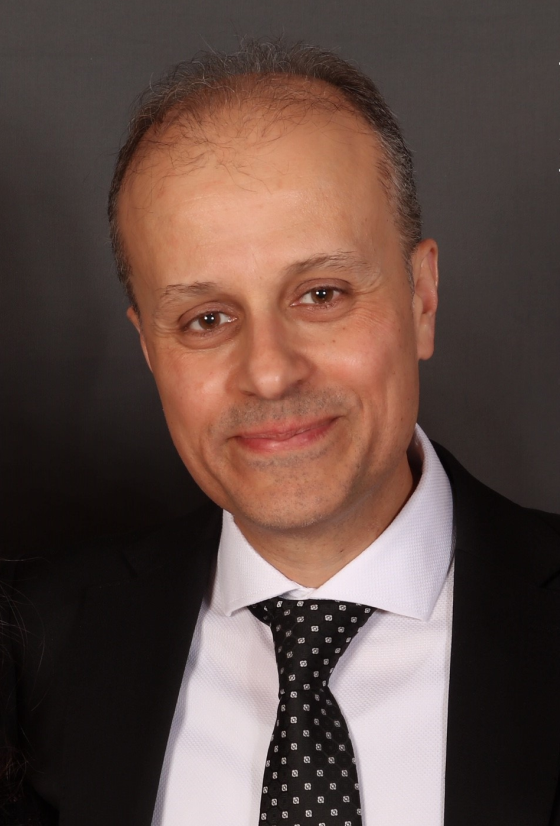 Dr. Mohamad Nawar Al-Awa, Regional Advisor on Technology for Development in UN-ESCWA
Dr. Mohamad Nawar Al-Awa, Regional Advisor on Technology for Development in UN-ESCWA
Dr. Mohamad Nawar Al-Awa is the Regional Advisor at Technology for Development Division (TDD) at UN-ESCWA, since 2013. He has more than 20 years of professional, academic and research experience. Dr. Al-Awa has been working on digital technologies, digital transformation, e-Government strategies, capacity building issues, and Technology for development areas for several years. He provided multiple advisory services and conducted numerous capacity building workshops in ESCWA member states. He served as an advisor to UNDP-Government Service Reform and modernization project (UNDP-GSR) in Syria and as consultant to International Telecommunication Union (ITU). In Academia, Dr. Al-Awa served as Associate Professor at the faculty of Information Technology engineering at Damascus University from 2004 to 2013. He was Dean of the faculty for four years, and Editor-in-Chief of Damascus University Journal for Engineering Sciences for four years. He also worked as researcher in Higher Institute for Applied Sciences and Technology (HIAST) in Damascus (1996-2003), and lectured in several public and private universities.
Dr. Al-Awa has a Ph.D. in Computer Engineering from National Polytechnic Institute of Grenoble (INPG) in France (1995), a Master degree (DEA: Diplôme d’Etudes Approfondies) in Electronic Systems from INPG-France (1991), and an Electronics Engineering degree from Higher Engineering School for Electronics and Communications of Grenoble (ENSERG) in France (1991). He has multiple research papers, published in national and international Journals, as well as several textbooks in Computer Systems, Information Technology, and Technology development.
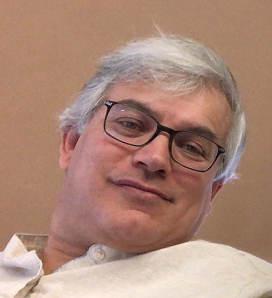 Dominique Archambault
Dominique Archambault, Board Member, Association for the Advancement of Assistive Technologies in Europe (AAATE)
Professor in Computer Sciences at Université Paris 8-Vincennes-Saint-Denis, Dominique Archambault is leading the team THIM (Technologies, Disabilities, Interactions, Multimodalities), part of CHArt laboratory (EA 4004, Human and Artificial Cognition), where he is conducting researches on non-visual human-computer interaction and accessibility to complex documents. The domains of application of his research works are multimodal access to mathematical expressions, allowing collaborative works between sighted an non sighted persons and accessibility to multimedia games. Pr Archambault got his PHD in Computer Sciences in 1995. As an Associate Professor, he carried out work at University of Le Havre and, since 1997, at Université Pierre et Marie Curie-Paris 6 where he became full professor by the end of 2010 and joined the THIM lab, and the Master "Technology and Handicap". From 2012 to 2016, he was designed by the President of University Paris 8 as Chargé de Mission Handicap (Policy Manager), with the role of defining the policies of the University in terms of Handicap (especially about providing support and help to students with disabilities at the university, but also staff) and the charge of piloting the support center for students with disabilities. He was elected at the board of AAATE (Association for the Advancement of Assistive Technologies in Europe – http://aaate.net) in 2013 and he is Associate Editor of the Scientific Journal “Technology and Disability” since September 2015. Pr Archambault has about a hundred publications including papers in international journals and conferences.
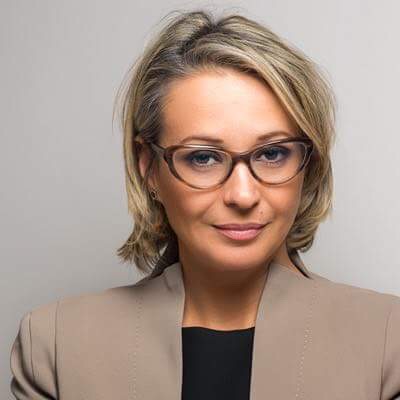 Ms. Teuta Bakalli CEO, NED, Angel Investor
Ms. Teuta Bakalli CEO, NED, Angel Investor
Sector experience: Cleantech, Financial Services, Fin Tech
Teuta is a Fellow of the Chartered Association of Certified Accountants with over 20 years’ experience in the regulated financial markets covering investment banking, insurance and asset management and Fin Tech. In October 2016, Teuta relocated to Malta and is founder of Cleantech360, which offers Online Market Place, Company Builder and Think Tank for Cleantech industry. In addition Teuta sits on numerous boards representing renewable energy, sustainability clients involved in Blockchain , AI technology as well as QDOOZ, an innovative e-learning platform which enables UK workers to acquire soft-skills-based CPD points. Prior to moving to Malta, Teuta was Chief Financial Officer at Worldpay, e-Commerce and Pepper Europe where she was responsible for leading Financial Control, IT, HR, Legal, Project Management and Risk & Compliance across their European operations. Significant M&A and due diligence experience culminated in closing deals in Ireland, Spain and UK within 18 months. Before moving to Pepper, Teuta was FD at Vanguard Asset Management after progresses through roles at Schroders, Credit Suisse First Boston and Barclays Capital, before being headhunted to join Willis as Finance Director and acting COO. An outstanding and inspirational leader with a unique combination of big business experience, innovation and entrepreneurship. A strategic thinker adept at integrating long-term plans with day-to-day practical operations, while driving business and individual growth.
Teuta is a Freeman of the City, Liveryman for the Worshipful Company of Glass Sellers.
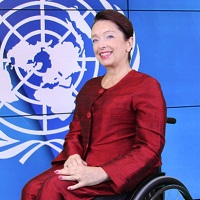 Ms. Daniela Bas was appointed Director of DESA’s Division For Inclusive Social Development on 9 May 2011. A politologist specialized in international politics, human rights and social development, Ms. Bas has most recently served as Senior Consultant designated by the Italian Ministry of Foreign Affairs as expert on human rights to Institutes that operate internationally. She has also provided her expertise on anti-discrimination issues at the Presidency of the Council of Ministers. Ms. Bas has worked for close to 10 years for the UN as a Professional Officer in social development and human rights, traveling around the world on behalf of the UN and also as a speaker at international conventions. She has also held a number of other significant assignments including as Special Adviser on “Fundamental Rights” for the former Vice President of the European Commission; as the Italian representative designated by the Presidency of the Council of Ministers on the topic “Tourism for All” to the European Commission; and as journalist and broadcaster for Italian Radio and TV. Ms. Bas is a Board Member of the EU Agency for Fundamental Rights and of the Committee to Promote non-Armed and non-Violent Civil Defense of the Presidency of the Council of Ministers. She graduated in Political Science in 1985, with a major in International Politics and wrote a dissertation on ”The elimination of architectural barriers and the employment of people with physical disabilities”.
Ms. Daniela Bas was appointed Director of DESA’s Division For Inclusive Social Development on 9 May 2011. A politologist specialized in international politics, human rights and social development, Ms. Bas has most recently served as Senior Consultant designated by the Italian Ministry of Foreign Affairs as expert on human rights to Institutes that operate internationally. She has also provided her expertise on anti-discrimination issues at the Presidency of the Council of Ministers. Ms. Bas has worked for close to 10 years for the UN as a Professional Officer in social development and human rights, traveling around the world on behalf of the UN and also as a speaker at international conventions. She has also held a number of other significant assignments including as Special Adviser on “Fundamental Rights” for the former Vice President of the European Commission; as the Italian representative designated by the Presidency of the Council of Ministers on the topic “Tourism for All” to the European Commission; and as journalist and broadcaster for Italian Radio and TV. Ms. Bas is a Board Member of the EU Agency for Fundamental Rights and of the Committee to Promote non-Armed and non-Violent Civil Defense of the Presidency of the Council of Ministers. She graduated in Political Science in 1985, with a major in International Politics and wrote a dissertation on ”The elimination of architectural barriers and the employment of people with physical disabilities”.
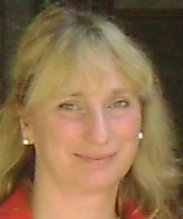 Ms. Francesca Cesa Bianchi, Vice President, Institutional Relations, G3ict
Ms. Francesca Cesa Bianchi, Vice President, Institutional Relations, G3ict
Francesca Cesa Bianchi oversees G3ict’s cooperation programs and institutional relations with the United Nations and other international agencies, advocacy organizations, governments, and academia since the organization’s inception in 2006. She is responsible for G3ict’s advocacy and capacity development programs in support of the implementation of the Convention on the Rights of Persons with Disabilities (CRPD). She also directs the agenda of the M-Enabling Summit, G3ict’s annual conference promoting accessibility innovations for persons with disabilities, organized in partnership with E.J. Krause and Associates, and helped promote its international editions, including the M-Enabling Forum Europe. Francesca has previously served as a freelance writer for CNN, as well as an accredited election observer for the Carter Center's Americas Program. A native of Milan, Italy, she lives in Atlanta, United States. She holds master’s degrees in political science and communication/media studies from the Universitá degli Studi of Milan and Georgia State University, respectively.
%20Claudia%20Borg_JCV-2880%20LR.jpg) Dr Claudia Borg, Lecturer, Department of Artificial Intelligence, University of Malta. PhD in Computational Linguistics from the University of Malta, 2016.
Dr Claudia Borg, Lecturer, Department of Artificial Intelligence, University of Malta. PhD in Computational Linguistics from the University of Malta, 2016.
Claudia is a lecturer at with the Department of AI, responsible for the Natural Language Processing stream within the department. Her research focuses on the computational processing of Maltese. Together with other colleagues, she recently won the University of Malta Research Fund to build the first prototype Automatic Speech Recognition system for Maltese. She is a member of the ICT subcommittee for the Maltese Language Council, as well as a committee member of the European Chapter of the Association for Computational Linguists. She is Country Lead for Women Techmakers, a Google initiative that encourages women to take up tech careers, and she is also Working Group Vice Lead in an EU Cost Action called EnetCollect, which aims at using Crowdsourcing and AI techniques to aid Language Learning.
%20Sharon_Borg_Schembri.jpg) Ms. Sharon Borg Schembri currently works as an Occupational Therapist with ACTU (Access to Communication and Technology Unit) and is also a lecturer at the University of Malta. She has been working at ACTU since 2009 during which she has gained expertise in the assessment of access technologies for children with disabilities. She earned a Bachelor’s Degree in Occupational Therapist from the University of Malta in 2005, following which she has further continued her professional development focusing on Assistive Technology (AT), early childhood interventions and Autism. She holds a Master’s degree in Inclusive Education and Communities with the University of Malta. Sharon has an interest in specialist access solutions especially to enable individuals to participate in leisure and work related activities. Ms. Borg Schembri has published paper in the Assistive Technology: Building Bridges as part of the AATE 2015 conference and contributed in local research in relation the implementation of AAC with children with ASD.
Ms. Sharon Borg Schembri currently works as an Occupational Therapist with ACTU (Access to Communication and Technology Unit) and is also a lecturer at the University of Malta. She has been working at ACTU since 2009 during which she has gained expertise in the assessment of access technologies for children with disabilities. She earned a Bachelor’s Degree in Occupational Therapist from the University of Malta in 2005, following which she has further continued her professional development focusing on Assistive Technology (AT), early childhood interventions and Autism. She holds a Master’s degree in Inclusive Education and Communities with the University of Malta. Sharon has an interest in specialist access solutions especially to enable individuals to participate in leisure and work related activities. Ms. Borg Schembri has published paper in the Assistive Technology: Building Bridges as part of the AATE 2015 conference and contributed in local research in relation the implementation of AAC with children with ASD.
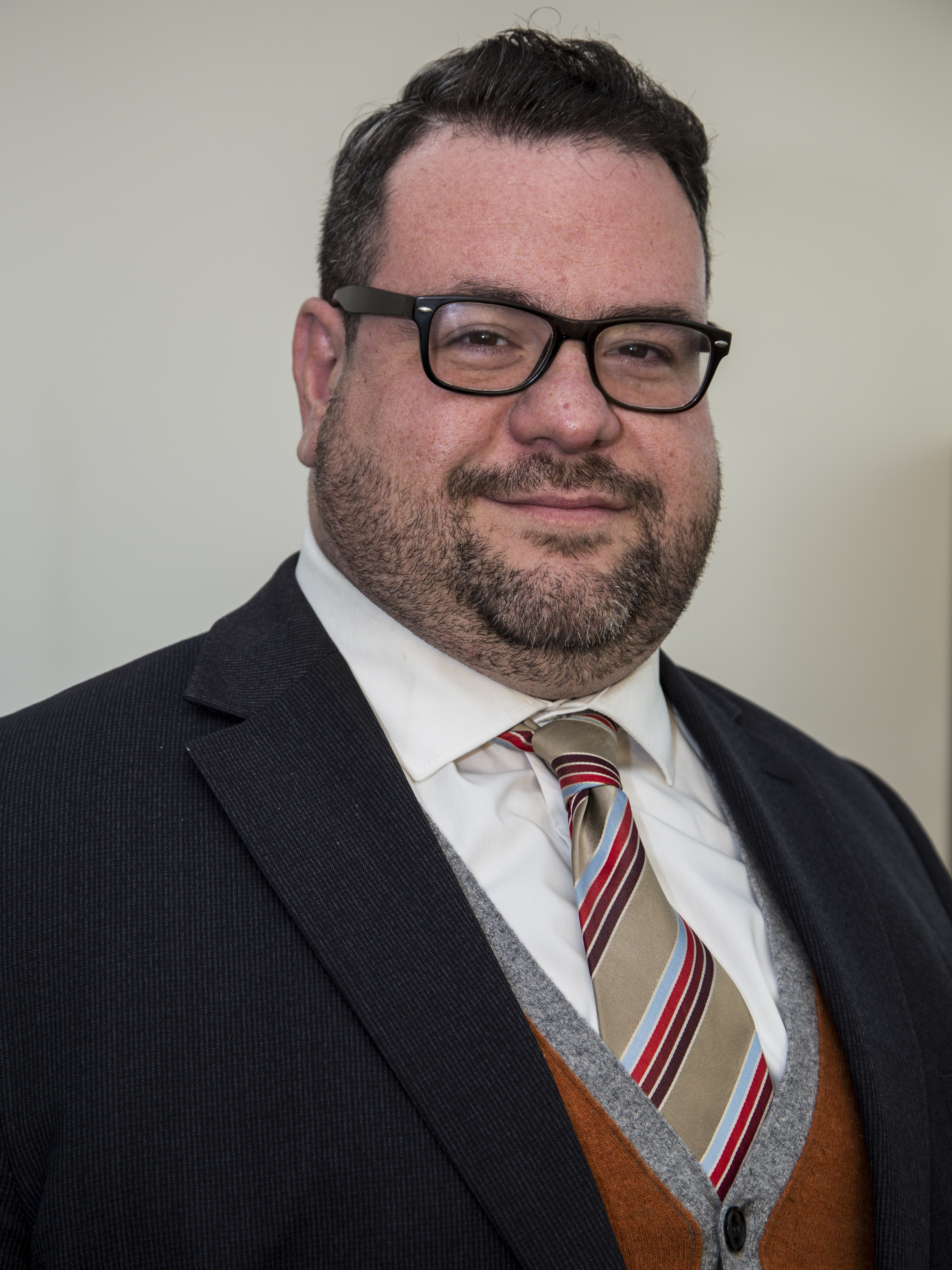 Mr. Bernard A. Busuttil
Mr. Bernard A. Busuttil is the Director of Investigations, Compliance and Enforcement at the Commission for the Rights of Persons with Disability, which is the Independent Mechanism responsible for monitoring the implementation of the National Disability Strategy in line with the UNCRPD and also acts as the regulator for the Maltese disability sector, protecting the rights of persons with disability in Malta. Previous to this position he held various other roles within the same commission. He studied at the University of Malta where he obtained an MA in Public Policy and a Doctorate in Law, following which he was called to the Maltese Bar in 2018. Bernard has also worked as a journalist and served as Communications Coordinator for the Ministry for Finance during Malta’s Presidency of the Council of the European Union.
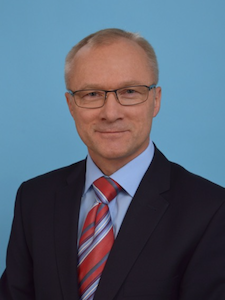 Mr. Dušan Caf has in-depth experience in technology and public policy. He is a founder of the Digital Society Forum, a Slovenian digital think-tank, which connects experts and leaders in addressing the challenges of today’s society. Additionally, it provides a platform for connecting stakeholders from advocacy, academia and industry dedicated to accessibility that collaborate on creating a more inclusive digital society. He is also an elected member of the Executive Committee of the South-Eastern European Dialogue on Internet Governance. Dušan served as chairman of the Council of the Agency for Communications Networks and Services of the Republic of Slovenia and chaired the National Electronic Communications Council, appointed by the National Assembly to provide advice and directions on the development of electronic communications in Slovenia. Under his leadership, the national council issued dozens of statements and position papers on key policy issues, including accessibility of television broadcasting and audiovisual media services. He also served in senior positions at the Chamber of Commerce and Industry, Slovenian Information Technology Industry Association and Telekom Slovenije. He was a member of supervisory boards in industry and NGOs. He led digital transformation and corporate strategy projects aimed at organisational growth. He was also in charge of public policy and government affairs leading cross-organisational teams.He was a fellow at Faculties of Information Science and Applied Social Studies, fellow at Jožef Stefan Institute and a visiting researcher at Loughborough University. He was also a lecturer in cybersecurity and digital transformation. Dušan holds a diploma degree in electrical engineering from the University of Maribor, a master’s degree in electrical engineering and a doctorate degree in computer science, both from the University of Ljubljana, following postgraduate research work in Slovenia and the United Kingdom.
Mr. Dušan Caf has in-depth experience in technology and public policy. He is a founder of the Digital Society Forum, a Slovenian digital think-tank, which connects experts and leaders in addressing the challenges of today’s society. Additionally, it provides a platform for connecting stakeholders from advocacy, academia and industry dedicated to accessibility that collaborate on creating a more inclusive digital society. He is also an elected member of the Executive Committee of the South-Eastern European Dialogue on Internet Governance. Dušan served as chairman of the Council of the Agency for Communications Networks and Services of the Republic of Slovenia and chaired the National Electronic Communications Council, appointed by the National Assembly to provide advice and directions on the development of electronic communications in Slovenia. Under his leadership, the national council issued dozens of statements and position papers on key policy issues, including accessibility of television broadcasting and audiovisual media services. He also served in senior positions at the Chamber of Commerce and Industry, Slovenian Information Technology Industry Association and Telekom Slovenije. He was a member of supervisory boards in industry and NGOs. He led digital transformation and corporate strategy projects aimed at organisational growth. He was also in charge of public policy and government affairs leading cross-organisational teams.He was a fellow at Faculties of Information Science and Applied Social Studies, fellow at Jožef Stefan Institute and a visiting researcher at Loughborough University. He was also a lecturer in cybersecurity and digital transformation. Dušan holds a diploma degree in electrical engineering from the University of Maribor, a master’s degree in electrical engineering and a doctorate degree in computer science, both from the University of Ljubljana, following postgraduate research work in Slovenia and the United Kingdom.
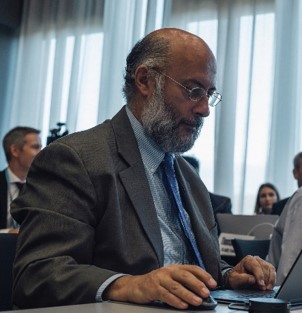 Mr. Simao Campos,
Mr. Simao Campos, Counsellor, ITU-T Study Group 16
Simão joined the secretariat of the ITU Standardization Sector in 2002, and is the Counsellor for ITU-T Study Group 16 (for standardization work on multimedia, including audio and video coding, accessibility/human factors, e-health, ITS, IPTV and digital signage) and ITU-T Focus Group on AI for health (FG-AI4H). He has a long experience in standardization, having started with voice compression standards in 1989. Prior to joining ITU, Simão was a Scientist at COMSAT Labs in the USA and a researcher at CPqD, a telecom research center in Brazil. A Senior Member of the IEEE, Simão authored several academic papers and position papers, served in the review committee of several IEEE-sponsored conferences, and organized the first ITU Kaleidoscope Conference
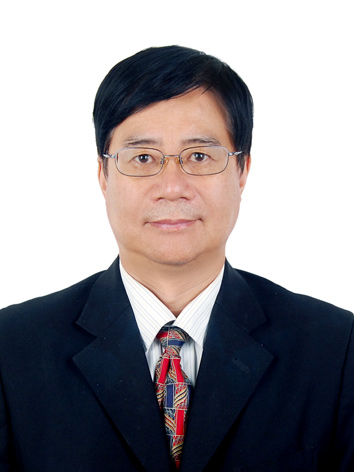
Mr. Ruoting Chang
Mr. Ruoting Chang
The Counsellor of ITU-R Study Group 6 (broadcasting service). Before joining ITU in August 2018, he was the Director of frequency planning division and terrestrial radio services division of the Ministry of Industry and Information Technologies of P.R.C and the Vice-Chair of ITU-R Study Group 1 and the Chair of Working Party 1B on international spectrum management. He has been engaging in international radio frequency coordination activities from 2006, he used to be the key coordinator in China’s delegation in World Radiocommunication Conferences 2012 and 2015.
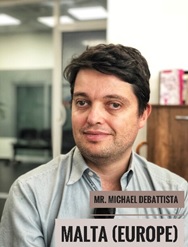 Mr Michael Debattista
Mr Michael Debattista is serving as assistant manager at the Commission for the Rights of Persons with Disability (CRPD) within the UNCRPD and DET team His forms part of the team responsible for the monitoring of the implementation of the United Nations Convention on the Rights of Persons with Disabilities (UNCRPD) and the delivery of training on disability awareness. Mr Debattista completed his BA (Hons) in Youth and Community Studies at the University of Malta in 2012. Three years later, he successfully completed his MA in Disability Studies at the same university. He has also initiated the process to eventually start reading for a PhD at the University of Malta, with the proposed thesis focusing on the use of online dating by young women.
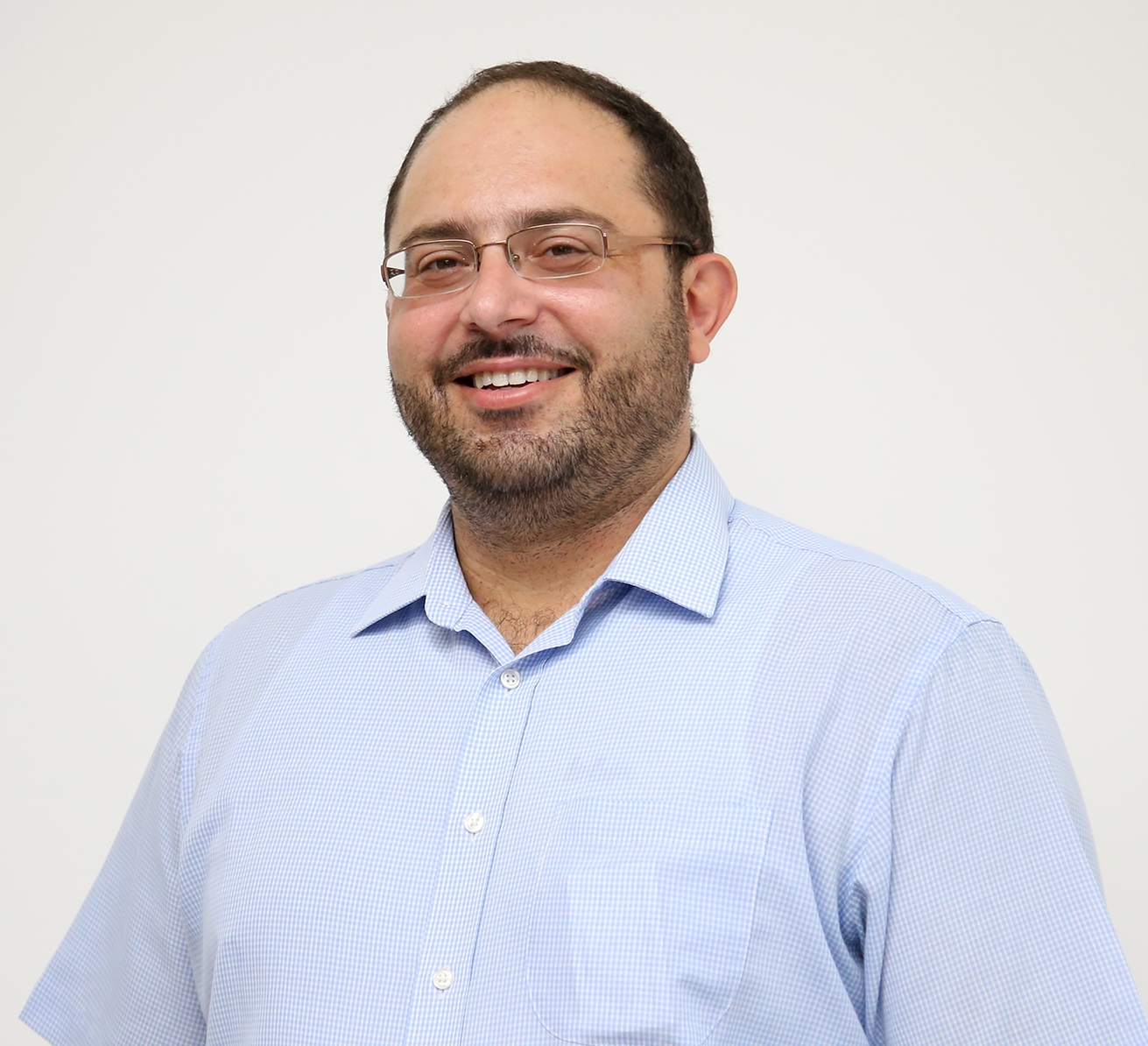 Mr Stanley Debono
Mr Stanley Debono graduated in banking and finance from the University of Malta. He worked for a number of years in stockbroking, software development and systems design. He joined the Foundation for Information Technology Accessibility (FITA) upon its inception in 2001. Here he developed a keen sense on how ICT can best be used to improve the quality of life of persons with disability. Working on multiple initiatives assisting government and business entities as well as disabled individuals he helped propel FITA from a fledgling helpdesk service in 2001 to the ICT Accessibility organisation it is today. These experiences furnished Mr. Debono with multi-disciplinary expertise that is essential to FITA's tiered consultancy and ICT accessibility assessment services. He also nurtured a strong team with a high proportion of persons with disability, each proficient in different areas of ICT accessibility. Mr Debono has also worked on a number of EU funded projects, seeing them through from design to implementation. Most recent among these are the development of the Maltese Speech Engine, and the SPOT-'discovering accessible' platform. In 2020 a major focus of Mr. Debono and his team will involve carrying out ICT accessibility assessments as part of the implementation of the EU Web Accessibility Directive.
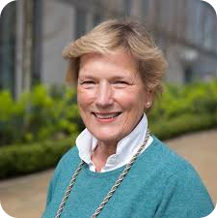 Ms. E.A. Draffan trained as a Speech and Language Therapist working with those who have complex communication needs, before specialising in the use of Assistive Technology and issues of digital accessibility. She has since worked with disabled students in Further and Higher Education, set up a university Assistive Technology Centre assessing and supporting disabled students and been part of a UK national Assistive Technology resource group. Over the last twelve years she has been working as a Senior Research Fellow within the Web and Internet Science Group at the University of Southampton. Research interests remain linked to the ease of use and accessibility of technologies and their content, the mainstreaming of assistive technologies and working with cultural and language differences in Augmentative and Alternative Communication (AAC and symbol use). She assists in the supervision of PhD students, has run international e-learning inclusion and digital accessibility MOOCs and lectures on an Assistive Technologies and Universal Design MSc course. Recent research includes ‘AI and Inclusion’ as part of the Alan Turing Institute work, as consultant on an EU project for mobile app choices for those with literacy difficulties (A is for App), supporting a UNICEF project on AAC and Early Intervention and working with the W3C WAI WCAG cognitive task force on web based accessibility for those with cognitive impairments.
Ms. E.A. Draffan trained as a Speech and Language Therapist working with those who have complex communication needs, before specialising in the use of Assistive Technology and issues of digital accessibility. She has since worked with disabled students in Further and Higher Education, set up a university Assistive Technology Centre assessing and supporting disabled students and been part of a UK national Assistive Technology resource group. Over the last twelve years she has been working as a Senior Research Fellow within the Web and Internet Science Group at the University of Southampton. Research interests remain linked to the ease of use and accessibility of technologies and their content, the mainstreaming of assistive technologies and working with cultural and language differences in Augmentative and Alternative Communication (AAC and symbol use). She assists in the supervision of PhD students, has run international e-learning inclusion and digital accessibility MOOCs and lectures on an Assistive Technologies and Universal Design MSc course. Recent research includes ‘AI and Inclusion’ as part of the Alan Turing Institute work, as consultant on an EU project for mobile app choices for those with literacy difficulties (A is for App), supporting a UNICEF project on AAC and Early Intervention and working with the W3C WAI WCAG cognitive task force on web based accessibility for those with cognitive impairments.
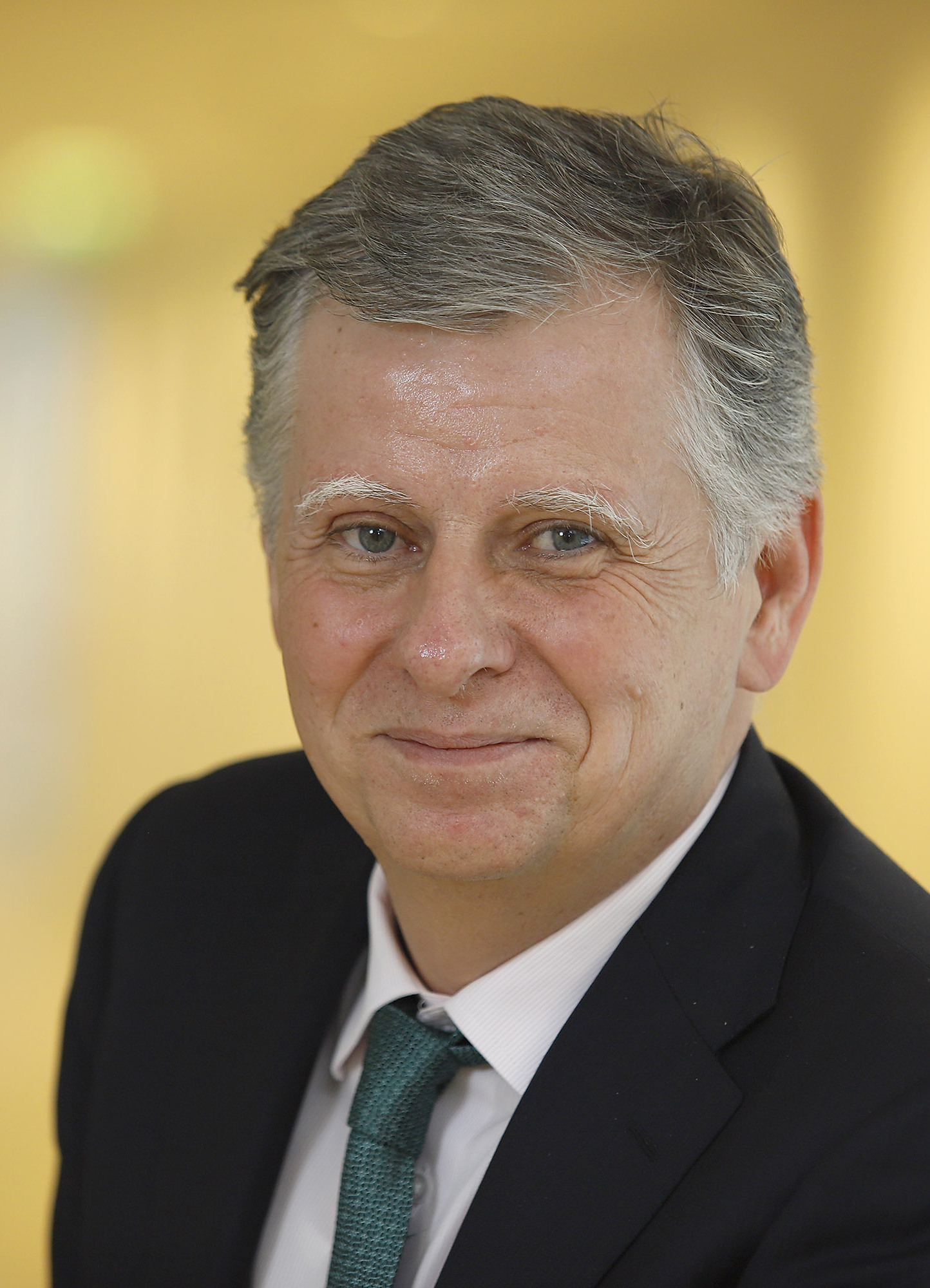 Mr. Michael FEMBEK
Mr. Michael FEMBEK, Zero Project Director, Essl Foundation
After graduating from the Vienna University of Economics, Michael Fembek (born 1961) joined GEWINN, an Austrian business magazine, serving between 2000 and 2007 as editor-in-chief. In 2009 he initiated “Sinnstifter”, a project by Austrian philanthropists, and launched the annual Austrian CSR-Guide on corporate responsibility. In 2010 he joined the Essl Foundation as Programme Manager and – until 2014 - the bauMax group as its Head of Social Affairs. Since 2011 he is the Director of the Zero Project, a project of the Essl Foundation, and organizes the annual Zero Project Conference in the UN Headquarters in Vienna.
In 2014, he co-initiated the Verband für Gemeinnütziges Stiften, the Austrian philanthropic association, where he serves as Vice President. In 2015, he became the Chair of the Thematic Group on Disabilities within the European Foundation Centre (EFC), in 2016 he co-initiated the Haus der Philanthropie in Vienna, and in 2019 he co-initiated the Sinnnbildungsstiftung, a foundation focusing on innovations in education, and now serves as a board member.
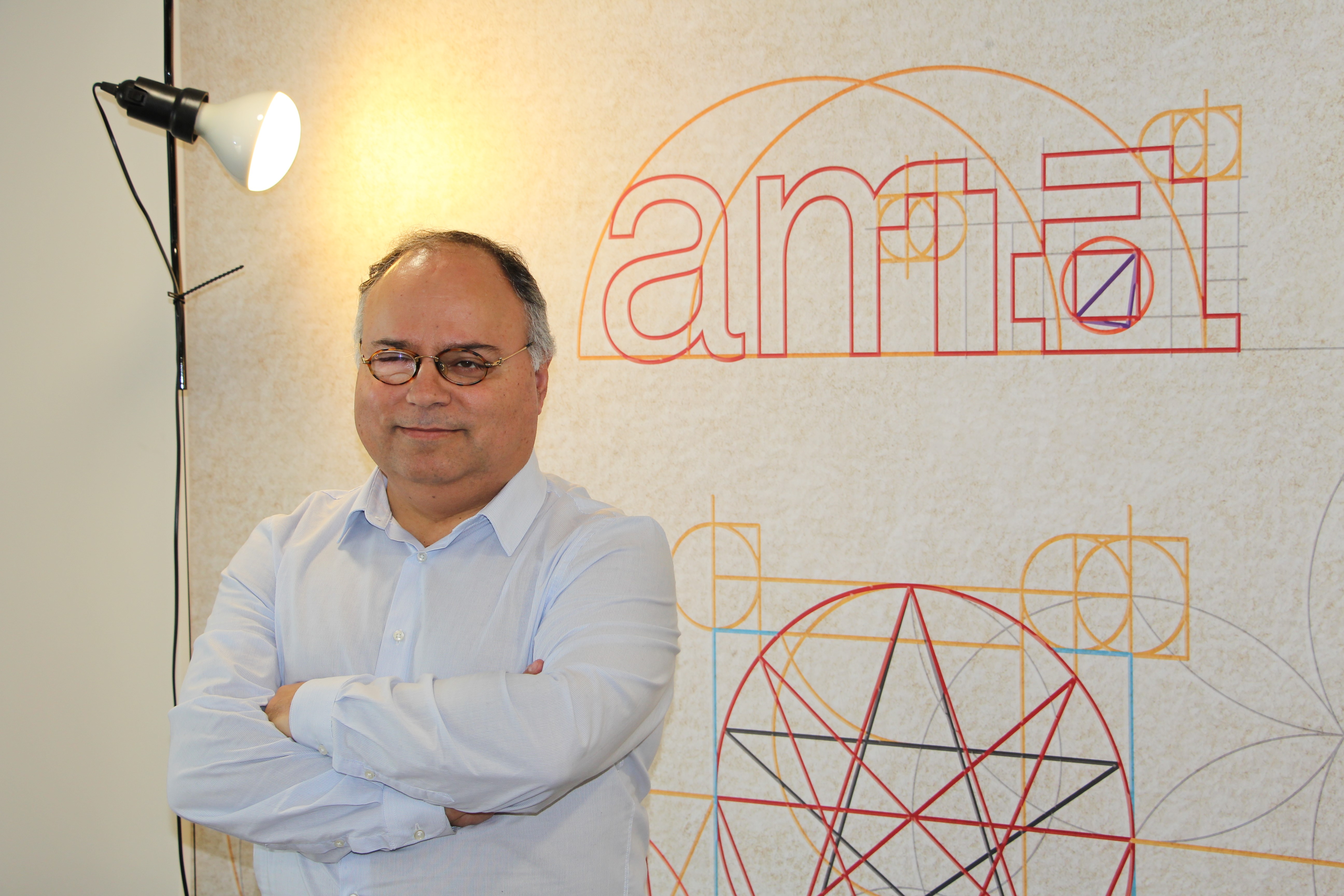 Mr. Jorge Fernandes works in the area of e-accessibility for people with disabilities since the earlier 1990s, firstly in the Portuguese Blind and Partially Sighted Association and since 2000 in the Ministry of Science & Technology. He is currently senior technician of AMA - Administrative Modernization
Mr. Jorge Fernandes works in the area of e-accessibility for people with disabilities since the earlier 1990s, firstly in the Portuguese Blind and Partially Sighted Association and since 2000 in the Ministry of Science & Technology. He is currently senior technician of AMA - Administrative Modernization
Agency (a Public Agency of the Council of Ministers), where he is part of the Digital Transformation Directory (Digital Experience Team). Jorge have been responsible by coordinating Governmental programmes to people with disabilities since 1999. Recently he was responsible by the writing of the Portuguese legislation that transpose the Directive 2016/2102 on the accessibility of the websites and mobile applications of public sector bodies.
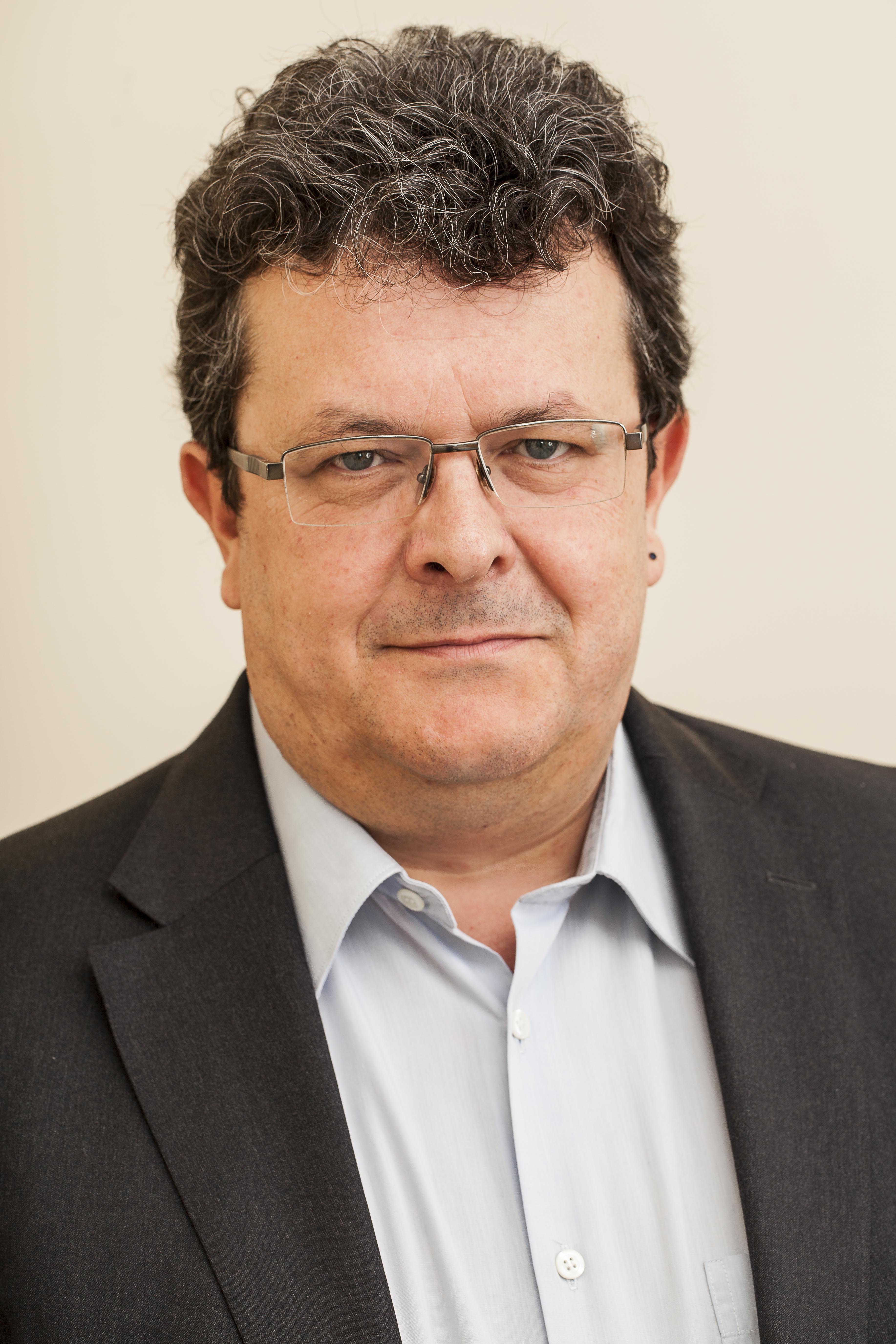 Mr. Klaus Höckner, born 1966, is member of the board of the Hilfsgemeinschaft based in Vienna. With more than 4650 members, the Hilfsgemeinschaft is the leading privately funded organisation helping visually impaired persons in Austria. He is member of the board of the Austrian Disabilty Forum and vice president of the Austrian Computer Society, as well as sitting in IAAPs Global Leadership Council. Klaus has an ICT background. He studied at the University of Economics in Vienna and has a degree as well as a PG in WebAccessiblity and Fundraising. Klaus is working for more than 15 years in the field of Accessiblity, especially regarding to ICT and standardisation in the context of an european (i.e. in the European Disability Forum EDF) and inter/national level.
Mr. Klaus Höckner, born 1966, is member of the board of the Hilfsgemeinschaft based in Vienna. With more than 4650 members, the Hilfsgemeinschaft is the leading privately funded organisation helping visually impaired persons in Austria. He is member of the board of the Austrian Disabilty Forum and vice president of the Austrian Computer Society, as well as sitting in IAAPs Global Leadership Council. Klaus has an ICT background. He studied at the University of Economics in Vienna and has a degree as well as a PG in WebAccessiblity and Fundraising. Klaus is working for more than 15 years in the field of Accessiblity, especially regarding to ICT and standardisation in the context of an european (i.e. in the European Disability Forum EDF) and inter/national level.
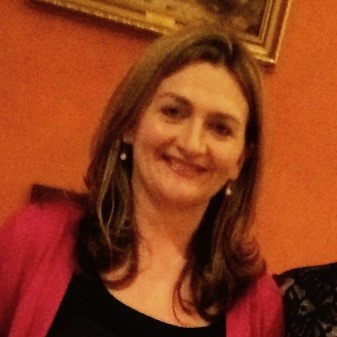 Ms. Therese Hourigan
Ms. Therese Hourigan joined the Commission for Communications Regulation (ComReg) in 2002. She has served in a number of roles in ComReg including, Postal and Consumer Care Manager and since 2012 as Head of Retail Policy. Therese is currently a member of ComReg’s Retail Senior Management Team involved in the development of Retail strategy; management of consumer budgeting, and action plan, reporting on deliverables, forecasting throughout the year in addition to the following: Responsible for the implementation of ComReg’s price and quality comparison website and ComReg’s interactive mobile coverage website. Management of the Consumer Care in-house team and the Third Party provider of the first line consumer care service. Responsible for Consumer Engagement strategy and implementation - ranging from transparency initiatives on the website for example our price comparison tool to representing ComReg at trade shows, running an outreach programme that extends to online and social media communication with consumers in respect to consumer initiatives that ComReg offer. Responsible for Electronic Communications and Premium Rate End-User policy including reviewing and implementing measures to benefit consumers in respect to Contracts, Transparency, Information, Bill Shock, Dispute Resolution, Switching, measures for people with disabilities etc. In addition Therese is currently serving as Co- Chair of BEREC’s End Users Expert Working Group (EWG) and is actively involved in delivering a number of projects and work streams involving switching, contract summary template and was previously involved in the BEREC disability working group.
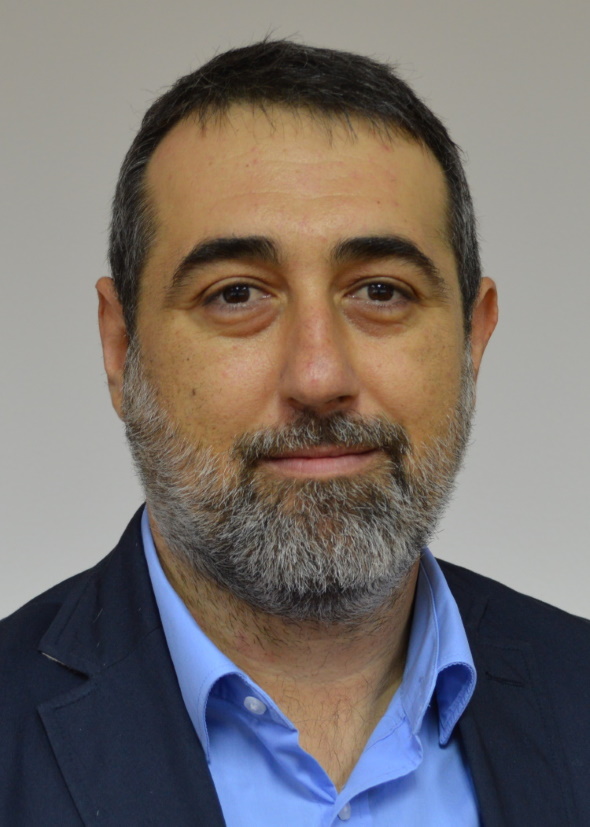 Mr. Nikola Ivanović
Mr. Nikola Ivanović graduated in telecommunications from the University of Montenegro, Faculty of Electrical Engineering, and have been working for the Agency for Electronic Media of Montenegro, which is a regulatory authority in the audiovisual media sector, for more than 16 years. His areas of expertise are telecommunications in general, broadcasting systems and radiocommunications, but I am also active in other regulatory activities in the AVM field. Throughout his professional career, he has participated and contributed in several different fields, including the supervision and management of radiofrequency spectrum (radiofrequency allocation plans, radiofrequency allotment plans for frequencies allocated to broadcasting services), application of international standards and recommendations in the broadcasting/AVM sector, and have been a member of different working groups and taskforces for drafting the major legal documents in the broadcasting/AVM field (Electronic Media Law and Electronic Communications Law, different rulebooks in the AVM sector, and strategies etc.). He was also very actively involved in the process of transition from analogue to digital terrestrial television in Montenegro, as a member of the Montenegrin delegation at the RRC06 conference, as well as by participating in and contributing to several international projects related to the digital television within the framework of the South East Europe Transnational Cooperation Programme (SEE). He was also a member of the Working Group for the Accession Negotiations with the EU for Chapter 10 (Information Society and Media). Presently, he is one of the coordinators of a working group for developing strategic guidelines on implementation of DAB+ radio in Montenegro and I participate in all activities of the Agency for Electronic Media aimed at creating an adequate television/video accessibility policy framework.
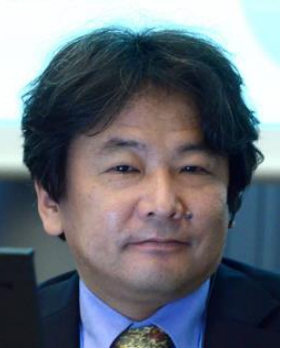 Mr. Masahito Kawamori is a Project Prof. at the Media and Governance School, Keio University, Japan. Before joining Keio University in 2013, he had been a senior research engineer of NTT, which he joined in 1989 to do research and development in application of artificial intelligence, to convergent systems for mobile and fixed telecommunication, such as conversational robots and humanoids. This became, in 1998, a part of Japan Science and Technology Agency's program called Core Research for Evolutional Science and Technology Program that aimed at "Creating the Brain". Since 2000, he was involved in several projects in and outside of Japan to apply metadata and ontology for various services including, but not limited to, telecommunication and broadcasting, which have led to global standards that are currently commercially deployed in several services. He is also actively involved with the International Telecommunication Union, part of the United Nations.
Mr. Masahito Kawamori is a Project Prof. at the Media and Governance School, Keio University, Japan. Before joining Keio University in 2013, he had been a senior research engineer of NTT, which he joined in 1989 to do research and development in application of artificial intelligence, to convergent systems for mobile and fixed telecommunication, such as conversational robots and humanoids. This became, in 1998, a part of Japan Science and Technology Agency's program called Core Research for Evolutional Science and Technology Program that aimed at "Creating the Brain". Since 2000, he was involved in several projects in and outside of Japan to apply metadata and ontology for various services including, but not limited to, telecommunication and broadcasting, which have led to global standards that are currently commercially deployed in several services. He is also actively involved with the International Telecommunication Union, part of the United Nations.
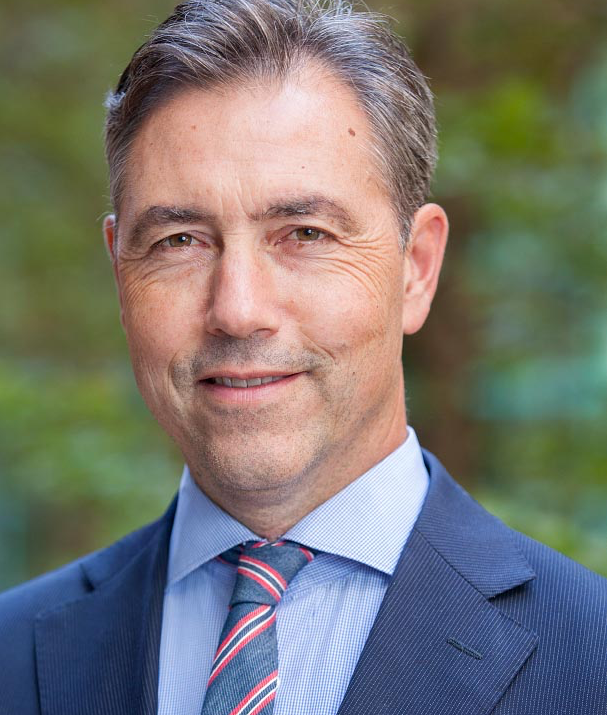 Mr. Johan Keetelaar
Mr. Johan KeetelaarJohan joined Facebook as Public Policy Director in the beginning of 2018. Johan leads Facebook’s Connectivity and Access Policy activities in Europe, Middle East and Africa. Prior to joining Facebook, Johan was the Director of Telecommunications, Post and Transport and Director Competition at the Authority for Consumers & Markets (ACM) in The Netherlands. He was also a member of BEREC, the Group of EU Electronic Communications Regulators.
Before the launch of the ACM in 2013 Johan - who holds an MSc. in Econometrics from the University of Amsterdam - worked at the Netherlands Independent Post and Telecommunications Authority (OPTA) as Director Markets. Prior to that Johan worked in the telecommunications, internet and aviation industry for almost ten years.
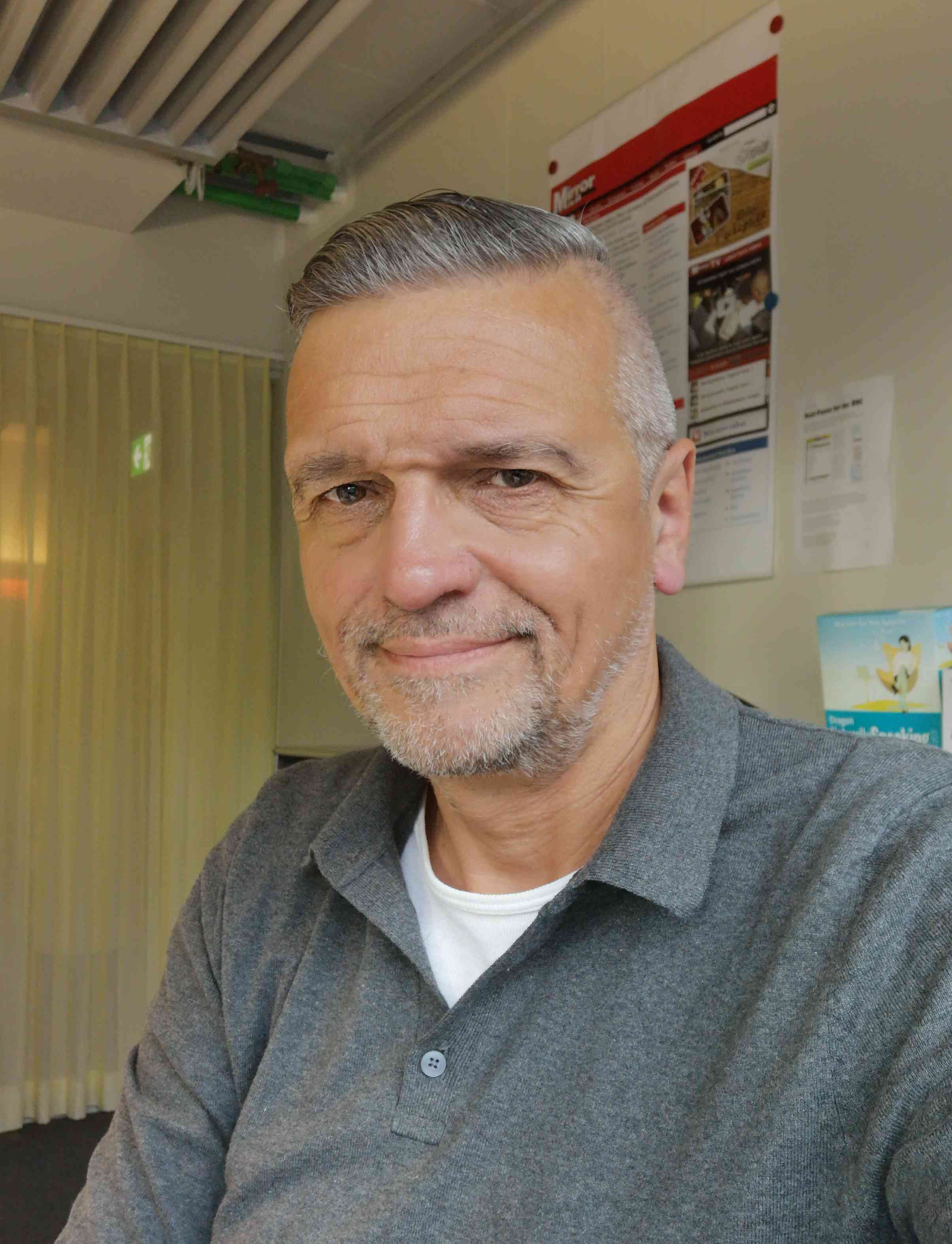 Mr. Gion Linder
Mr. Gion Linder After studies in marketing Gion Linder worked as a consultant for different new media projects in the eighties and nineties. He worked as a content-manager for a publisher, as a product-manager for a cable-company and as a project-manager for a mobile carrier. In 2007 joined SWISS TXT, a company of the national public broadcaster, where he strongly increased the number of services for television and third-party entities in all national languages. Meanwhile he is a member of the management board. Gion Linder is also chairman of the Eurovision Access Services Experts Group.
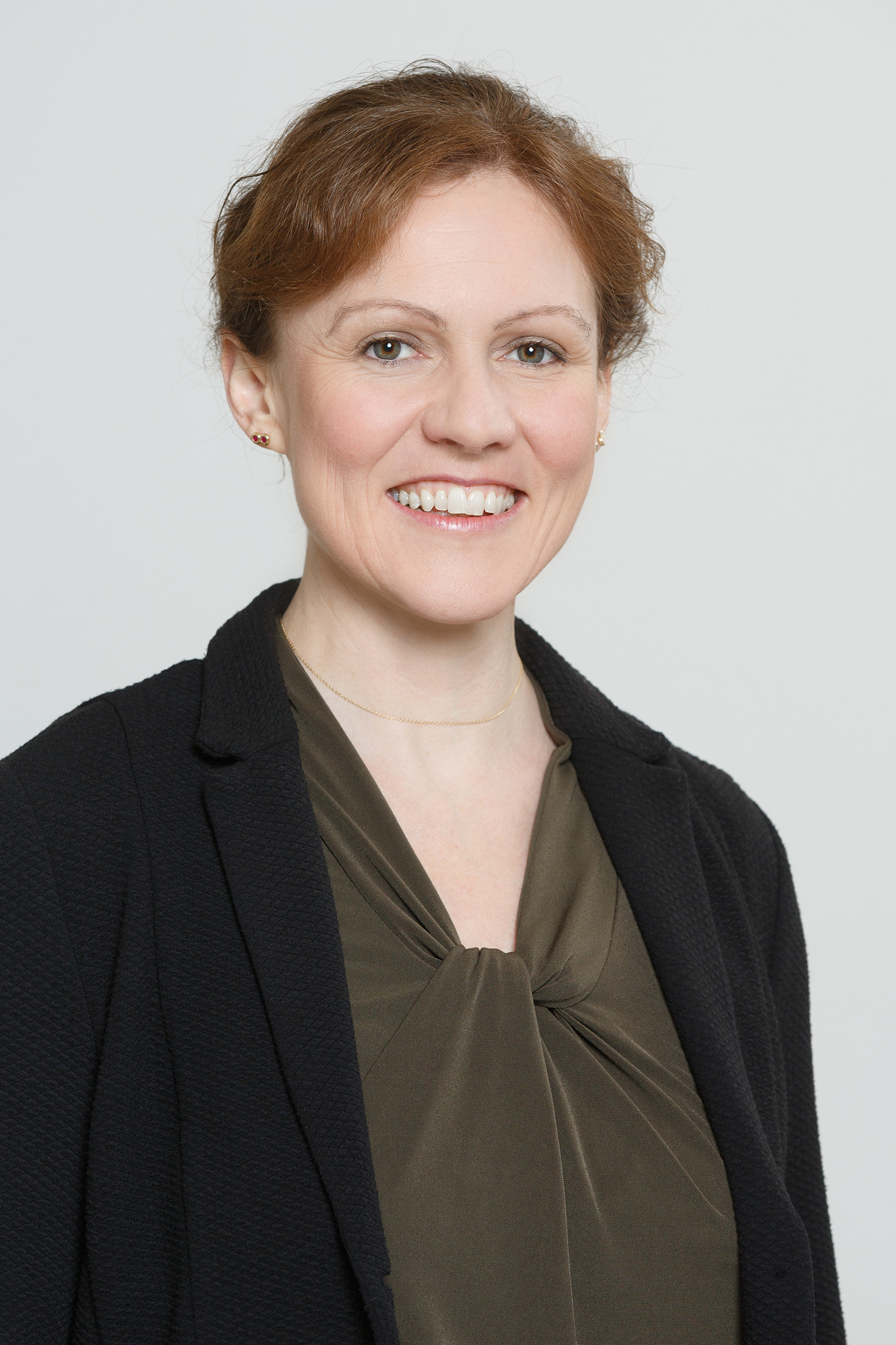 Ms. Sabine Lobnig
Ms. Sabine Lobnig is the MWF’s Deputy Director for Communications & Regulations. The MWF is the international association of companies with an interest in mobile and wireless communications including the evolution to 5G and the Internet of Things. One of the MWF’s main projects is the Global Accessibility Reporting Initiative (GARI). GARI’s mission is to inform consumers about existing accessibility solutions in the market today and help them identify devices with features that best help their individual needs. This includes mobile phones with built-in screen readers, “simple access” for persons who find today’s user interfaces overwhelming, Wearables with haptic feedback, Smart TVs that allow voice recognition for accessing features, or mobile apps that have been developed specifically to help overcome a barrier in daily life like finding accessible locations.
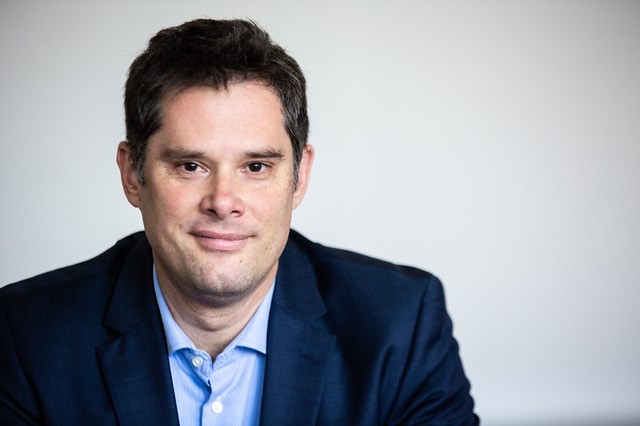 Dr.
Lászlo Lovászy has lost 80 % of his hearing at being only a few days old. After having received his law degree in 2000, he also earned his Ph.D. title (2007). In the field of disability, he worked for the ministries of social and labour affairs between 2001 and 2009 as an administrator and was the Hungarian representative at the Committee on Rehabilitation and Integration of People with Disabilities (CD-P-RR) of the Council of Europe (2003-2005). He also worked as the first hard of hearing scientific policy advisor to the first deaf member of the European Parliament between 2009-2018. He also served as board member of the national umbrella organisation for the deaf and hard of hearing (SINOSZ, 2009-2011). He was elected at the UN General Assembly in New York and became the first hearing impaired member of United Nations' Committee of the Rights of Persons with Disabilities (UNCRPD Committee) in 2012. Dr. Lovászy, having been a re-elected expert in 2016, has continued his work as focal point on disability and technology since 2018. He has also been working as commissioner on supporting strategic governmental research. He is currently a senior research fellow of Faculty of International Relations and Diplomacy at the National University of Public Service in Budapest. He is also a founding member of the Hungarian Artificial Intelligence Coalition. Alongside his daily work, since 1996 he has been giving lectures on the topic of disability and human rights at four Hungarian universities. He published more than 140 articles, studies and essays as well as contributed to two university books. His recent research interests are focused on the theory and practice of human rights, rehabilitation, biotechnology, robotics and artificial intelligence.
Dr.
Lászlo Lovászy has lost 80 % of his hearing at being only a few days old. After having received his law degree in 2000, he also earned his Ph.D. title (2007). In the field of disability, he worked for the ministries of social and labour affairs between 2001 and 2009 as an administrator and was the Hungarian representative at the Committee on Rehabilitation and Integration of People with Disabilities (CD-P-RR) of the Council of Europe (2003-2005). He also worked as the first hard of hearing scientific policy advisor to the first deaf member of the European Parliament between 2009-2018. He also served as board member of the national umbrella organisation for the deaf and hard of hearing (SINOSZ, 2009-2011). He was elected at the UN General Assembly in New York and became the first hearing impaired member of United Nations' Committee of the Rights of Persons with Disabilities (UNCRPD Committee) in 2012. Dr. Lovászy, having been a re-elected expert in 2016, has continued his work as focal point on disability and technology since 2018. He has also been working as commissioner on supporting strategic governmental research. He is currently a senior research fellow of Faculty of International Relations and Diplomacy at the National University of Public Service in Budapest. He is also a founding member of the Hungarian Artificial Intelligence Coalition. Alongside his daily work, since 1996 he has been giving lectures on the topic of disability and human rights at four Hungarian universities. He published more than 140 articles, studies and essays as well as contributed to two university books. His recent research interests are focused on the theory and practice of human rights, rehabilitation, biotechnology, robotics and artificial intelligence.
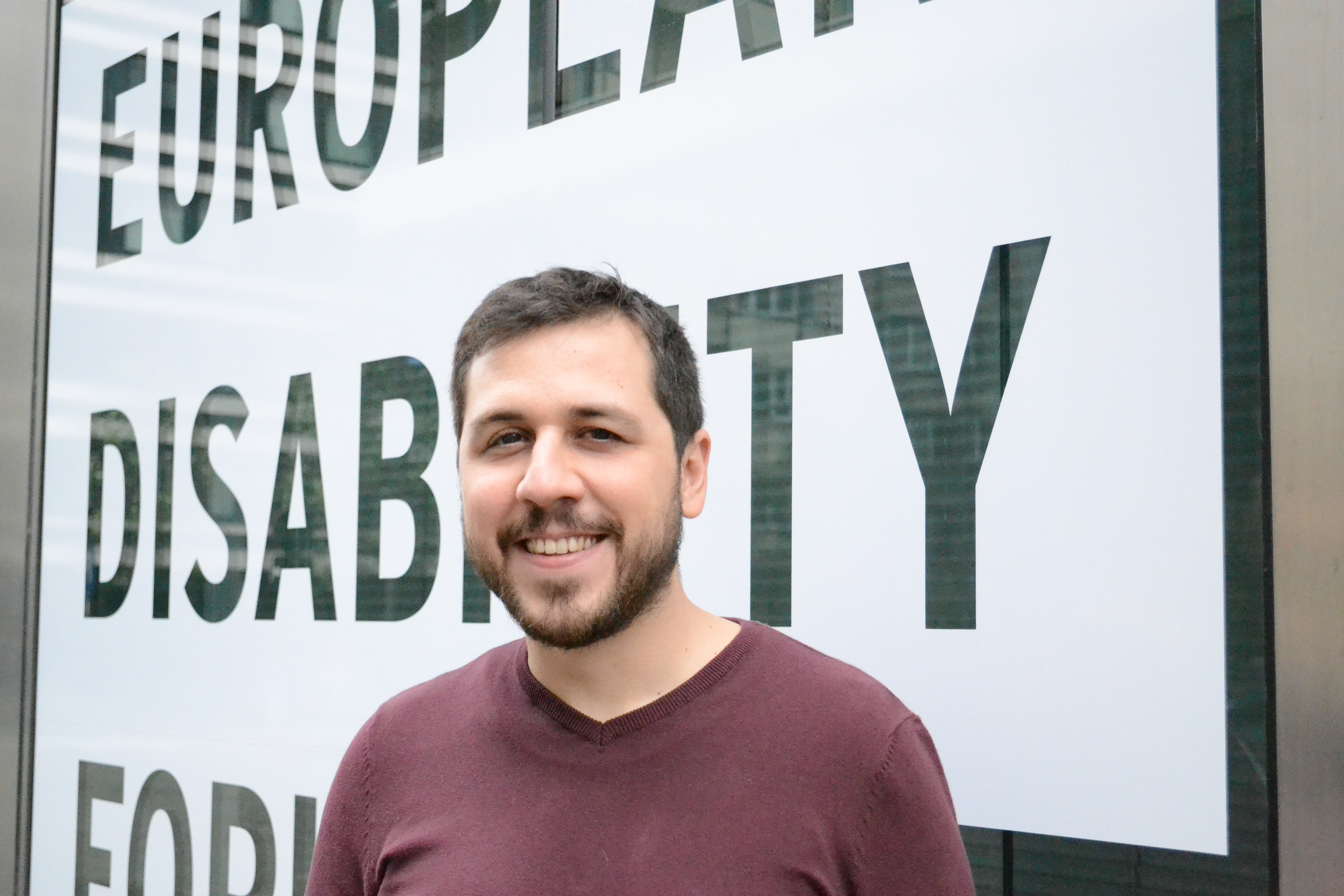 Mr. Alejandro Moledo del Río, European Disability Forum (EDF) Policy Coordinator.
Mr. Alejandro Moledo del Río, European Disability Forum (EDF) Policy Coordinator.
Mr. Moledo coordinates EDF’s advocacy work towards the European Parliament, and focuses on policies concerning political participation and accessibility for persons with disabilities on Information and Communication Technologies (ICT), research and innovation, and EDF involvement in standardization activities. Among other areas, Mr. Moledo has developed policy positions and recommendations regarding web accessibility, audiovisual services, electronic communications, and accessibility requirements for other ICT products and services. Additionally, he also supports the work of the European Parliament Disability Intergroup. Mr. Moledo holds a Bachelor's degree with honours in Journalism from University of Valencia (Spain, 2005-2010), including one year at York University (Canada), as well as a Master's degree in political and corporate communication from University of Navarra and George Washington University (Spain and US, 2011-2012). During his bachelor’s studies he worked as communication officer for a political group within the parliament of the Valencia Region (2009 and 2010). After working as a journalist in digital media and a communication agency in Andorra, he started working in a European public affairs company (Madrid) in 2012, before joining the European Disability Forum in 2013. Mr Moledo is also member of the Spanish Blind Organisation (ONCE), for which he worked as a journalist and regional representative of young visually impaired people inside the organisation (2008-2011).
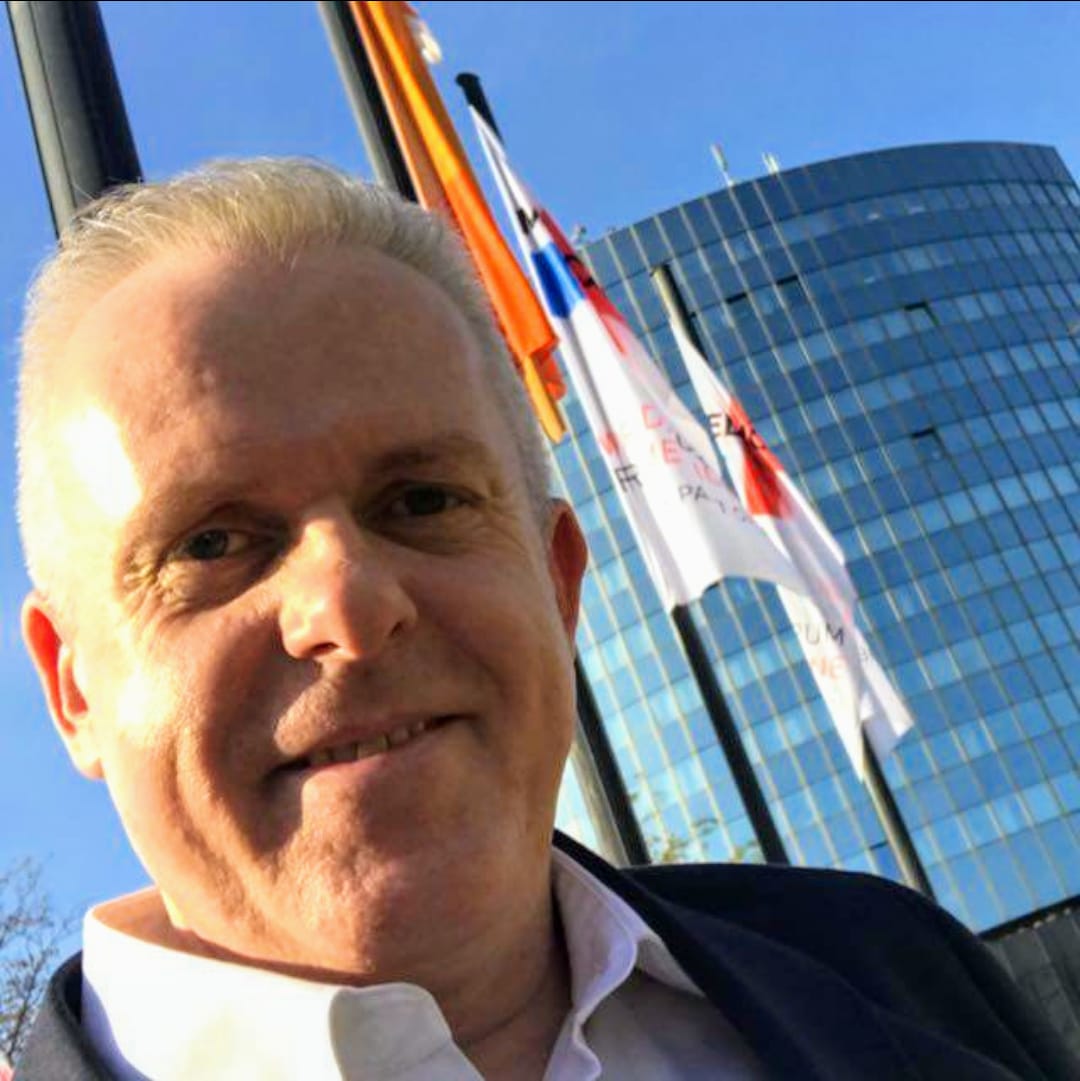 Mr Christoph Jo. Müller
Mr Christoph Jo. Müller
Background in Electrical Engineering. He is working in the Assistive technology industry since more than 30 years. 1990 Founder and CEO of INCAP GmbH, (AT manufacturer and service provider), 2006 Founder and CEO ATNAD, Inc., Texas, USA (AT Distribution), Founder of a few internet platforms for AT. After a merger of INCAP and CSS MicroSystems GmbH he is member of the board as Executive Vice President Sales and Business Development. He is also working as a consultant for start ups and health insurance companies. Since 1997 he is President of the Board of Directors of BEH (Assistive Technology Industry Association, Germany) and was member of the Board of Directors of ATIA Assistive Technology Industry Association 2011 to 2014. He was speaker and moderator at several conferences (e. g. M-Enabling Europe, ATIA, ATAAC, MAIK).
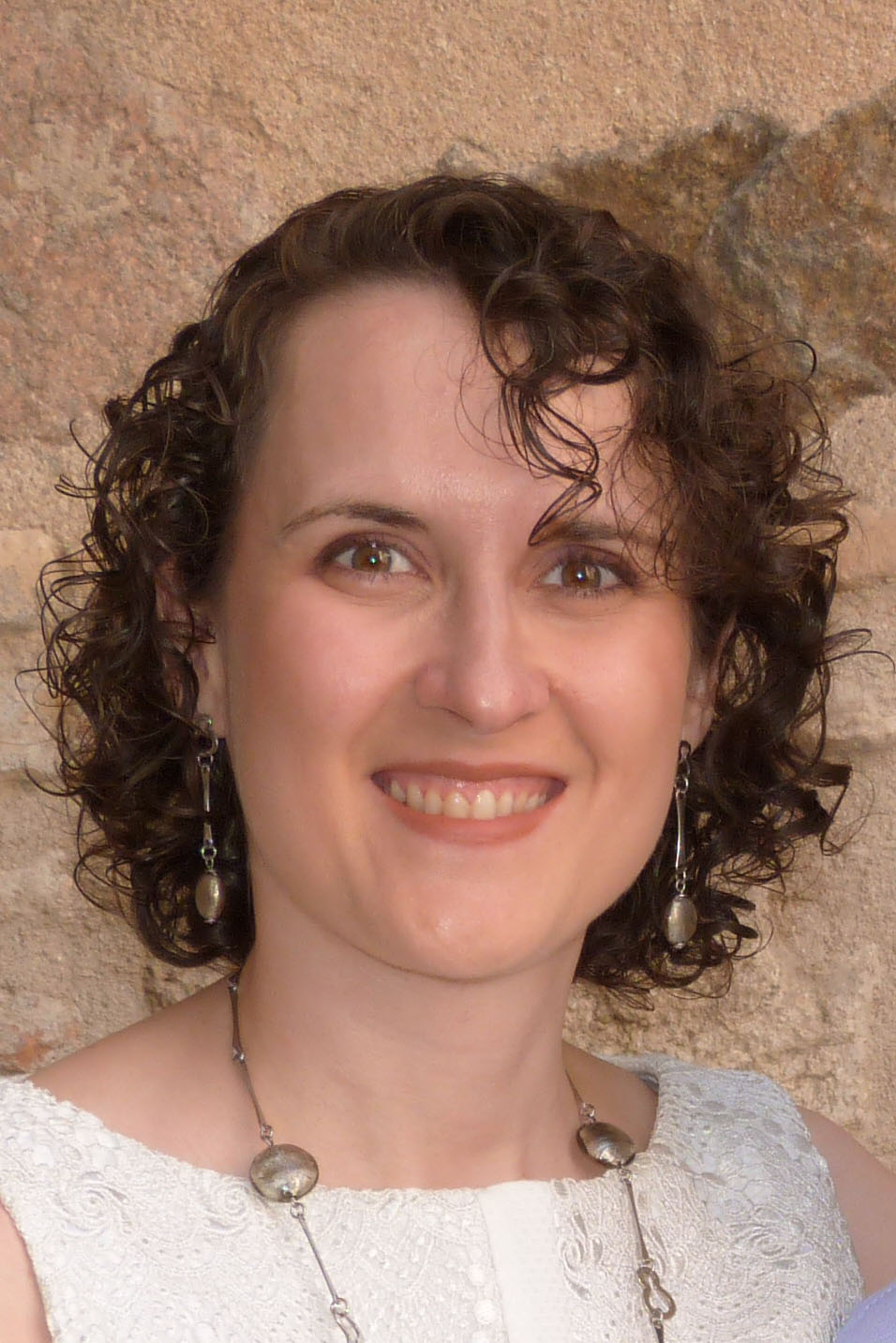 Ms. Elena Muñoz
Ms. Elena Muñoz graduated in telecommunications engineering and joined Spain’s General State Administration as a civil servant in 2003. Now she is Head of Telematics Systems Area within the General Secretariat of Digital Administration at the Ministry of Territorial Policy and Public Function. Among other activities, Elena Muñoz has worked actively in the field of accessibility for many years. Since 2009, she leads the initiative of the Web Accessibility Observatory of the Spanish Government and she has taken part in all the negotiations of the web accessibility directive. Right now she's the coordinator of the monitoring and reporting activities for the web accessibility directive in the Spanish Government.
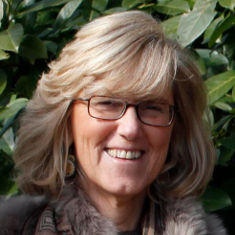 Ms Cristina Mussinelli
Ms Cristina MussinelliSecretary General of the LIA Foundation (www.fondazionelia.org) a non-profit organization, created in 2014 by AIE (Italian Publishers Association) in collaboration with UICI (Italian Union of the Blind and Visually Impaired), which promotes the development of an accessible digital publishing ecosystems. She has been involved in the world of accessibility and technological innovation since the early 2000s. She is also AIE consultant for digital publishing, member of the Board of EDRLab (European Digital Reading Lab), of the W3C Digital Publishing Business Group, of the Daisy Consortium and invited expert of the section ISO OT UNI / CT 014 / SC 04 "Automation and documentation".
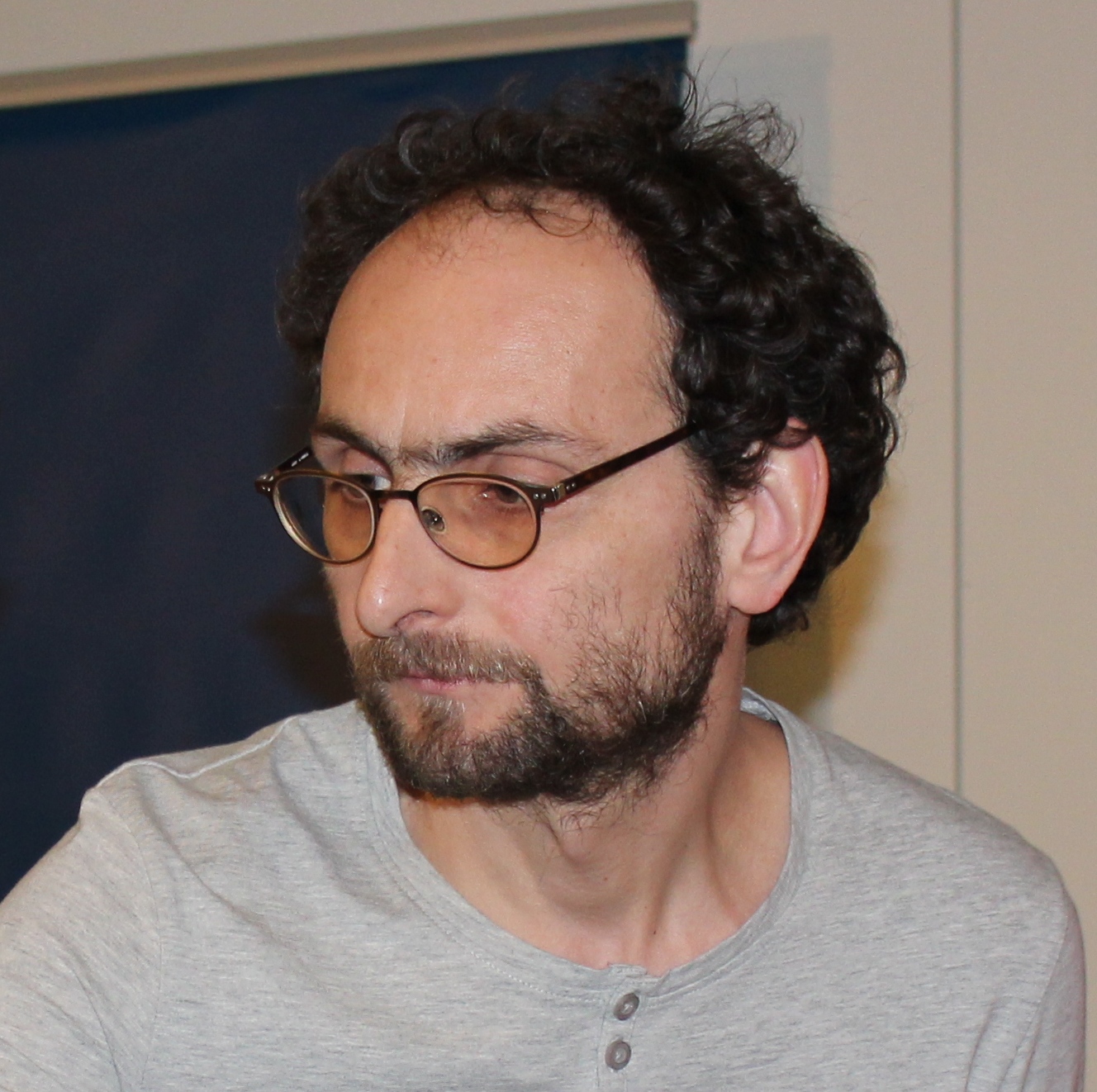 Mr Svatoslav Ondra
Mr Svatoslav Ondra
Having started his professional career as a lecturer and consultant in assistive technologies and as a co-author of the Czech web accessibility guidelines at the Czech Blind United (1997–2001), he joined the Support Centre for Students with Special Needs (Teiresias Centre) at Masaryk University in 2001. He has been appointed as head of the Special ICT Section, responsible for hardware and software adjustments in study curricula of students with special needs. Svatoslav Ondra runs courses in computer science and informatics for the blind and visually impaired students of Masaryk University, he contributes to applied methodologies on how to make teaching and learning materials accessible and together with his colleagues he runs instructional courses and workshops on accessibility of documents and teaching activities, targeted for teachers and service providers of other Czech universities. Svatoslav also conducts many of the development activities of Teiresias Centre which aim to invent and publish its own software tools supporting accessibility in various perspectives (e.g., a metasearch engine of accessible documents, a system providing accessibility of both spoken language and presentation screen in one app, an online tool for distant interpreting of sign language and others). Svatoslav regularly shares outcomes of his activities by presenting his conference papers and participating in professional forums.
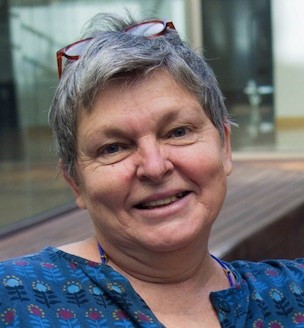 Dr Pilar Orero
Dr Pilar Orero
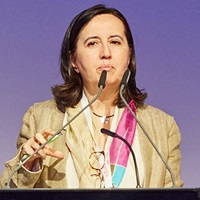 Ms. Inmaculada Placencia is Senior Expert in the Unit Disability&Inclusion at the European Commission. The unit coordinates policies for persons with disabilities including the European Disability Strategy 2010-2020 and the implementation of the UNCRPD (EU focal point). She graduated in Physics and Computer Science, has a Grade in Physics. She joined the European Commission in 1991 working since then in research, policies and legislation on assistive technology and accessibility in the EU and internationally. She is the expert responsible for the development of specific accessibility legislation including in ICT adopted in 2019 and for EU standardisation on accessibility including on ICT.
Ms. Inmaculada Placencia is Senior Expert in the Unit Disability&Inclusion at the European Commission. The unit coordinates policies for persons with disabilities including the European Disability Strategy 2010-2020 and the implementation of the UNCRPD (EU focal point). She graduated in Physics and Computer Science, has a Grade in Physics. She joined the European Commission in 1991 working since then in research, policies and legislation on assistive technology and accessibility in the EU and internationally. She is the expert responsible for the development of specific accessibility legislation including in ICT adopted in 2019 and for EU standardisation on accessibility including on ICT.
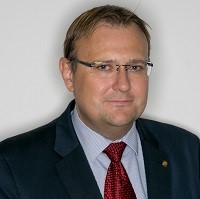 Mr. Jaroslaw K. Ponder, Head of the Office for Europe at the International Telecommunication Union (ITU) (Geneva, Switzerland), representing ITU in Europe and directing actions, projects, initiatives and experts groups targeting 46 countries of the Europe Region. His portfolio includes set of Regional Initiatives for Europe, designed by the European Member States and focusing on the ICT Infrastructure, Digitization, Digital Inclusion, Accessibility, Innovation and Cybersecurity. Along the professional career, Mr. Ponder held official positions in the public sector and was a contributor to the legislative projects having the impact on the public policy. Since 2014 Mr. Ponder has been working for ITU holding diverse positions in the General Secretariat, Telecommunication Development Bureau, and Regional Presence, addressing complexity of information society development and digital transformation at national, regional, international level, including United Nations level. For several years he has managed ITU’s work on the United Nations World Summit on the Information Society (WSIS) process, leading towards the establishment of the annual WSIS Forum, WSIS Prizes, WSIS Stocktaking, others.
Mr. Jaroslaw K. Ponder, Head of the Office for Europe at the International Telecommunication Union (ITU) (Geneva, Switzerland), representing ITU in Europe and directing actions, projects, initiatives and experts groups targeting 46 countries of the Europe Region. His portfolio includes set of Regional Initiatives for Europe, designed by the European Member States and focusing on the ICT Infrastructure, Digitization, Digital Inclusion, Accessibility, Innovation and Cybersecurity. Along the professional career, Mr. Ponder held official positions in the public sector and was a contributor to the legislative projects having the impact on the public policy. Since 2014 Mr. Ponder has been working for ITU holding diverse positions in the General Secretariat, Telecommunication Development Bureau, and Regional Presence, addressing complexity of information society development and digital transformation at national, regional, international level, including United Nations level. For several years he has managed ITU’s work on the United Nations World Summit on the Information Society (WSIS) process, leading towards the establishment of the annual WSIS Forum, WSIS Prizes, WSIS Stocktaking, others.
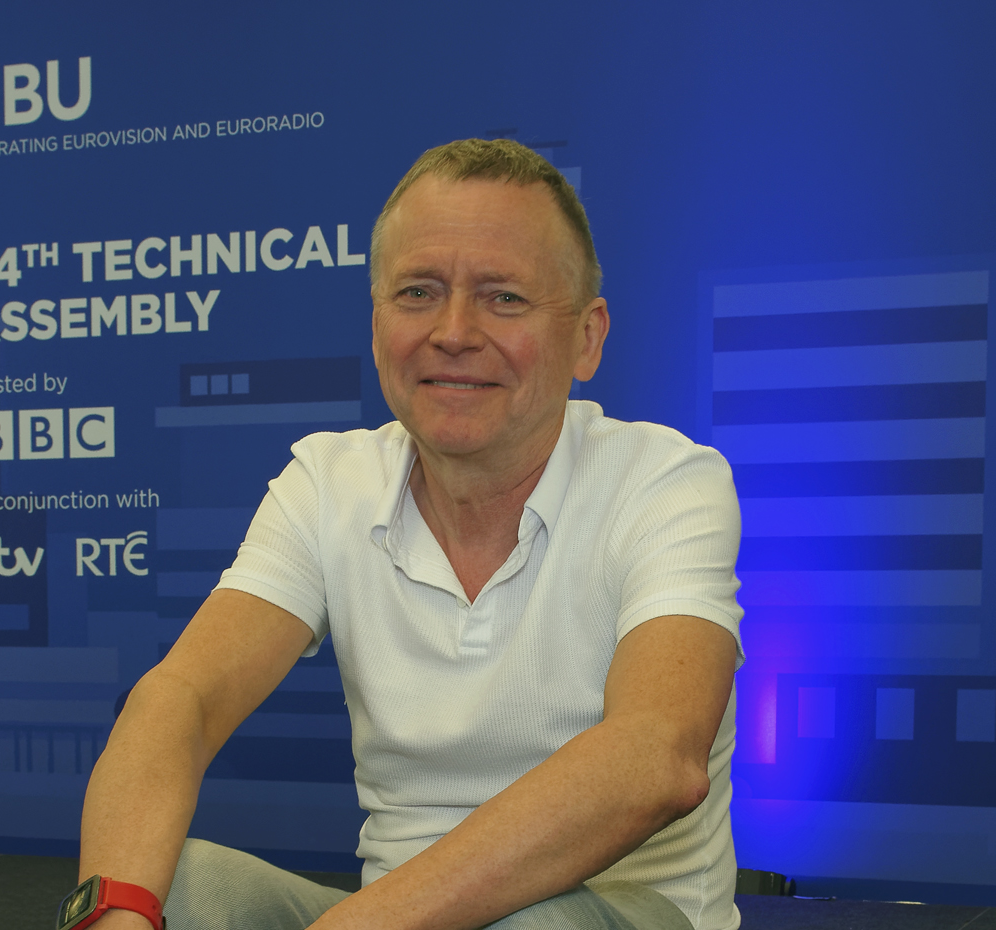 Mr. Andy Quested started working as a BBC Technical Assistant in 1978 becoming a video-tape editor in 1985 where he worked on many comedy, children’s and documentary series, editing all episodes of “Keeping Up Appearances”! He also worked on the introducing of non-linear editing, stereo and widescreen production.
Mr. Andy Quested started working as a BBC Technical Assistant in 1978 becoming a video-tape editor in 1985 where he worked on many comedy, children’s and documentary series, editing all episodes of “Keeping Up Appearances”! He also worked on the introducing of non-linear editing, stereo and widescreen production.
In 1998 Andy moved to a new BBC technology department working on the BBC’s first HD programmes including Planet Earth I and the first UHD programme, Planet Earth II
He is technical lead for the UK’s Digital Production Partnerships AS-11 format and leads the EBU Production Strategic Group looking at all areas of content. He is also an active member of SMPTE, becoming a Fellow in 2014 for work relating to.
Andy has carried out work In ITU-R Working Party 6C as a Rapporteur in several study areas including 3DTV, the Interoperable Mastering Formant for the Global Platform and studies into Quality of Experience. Andy has also chaired several Rapporteur Groups including the group that developed the HDR Recommendation until 2015 when he became chair of Working Party 6C itself where he initiated new areas of study on Advanced Immersive Audio Visual Systems and Artificial Intelligence in content production and international programme exchange.
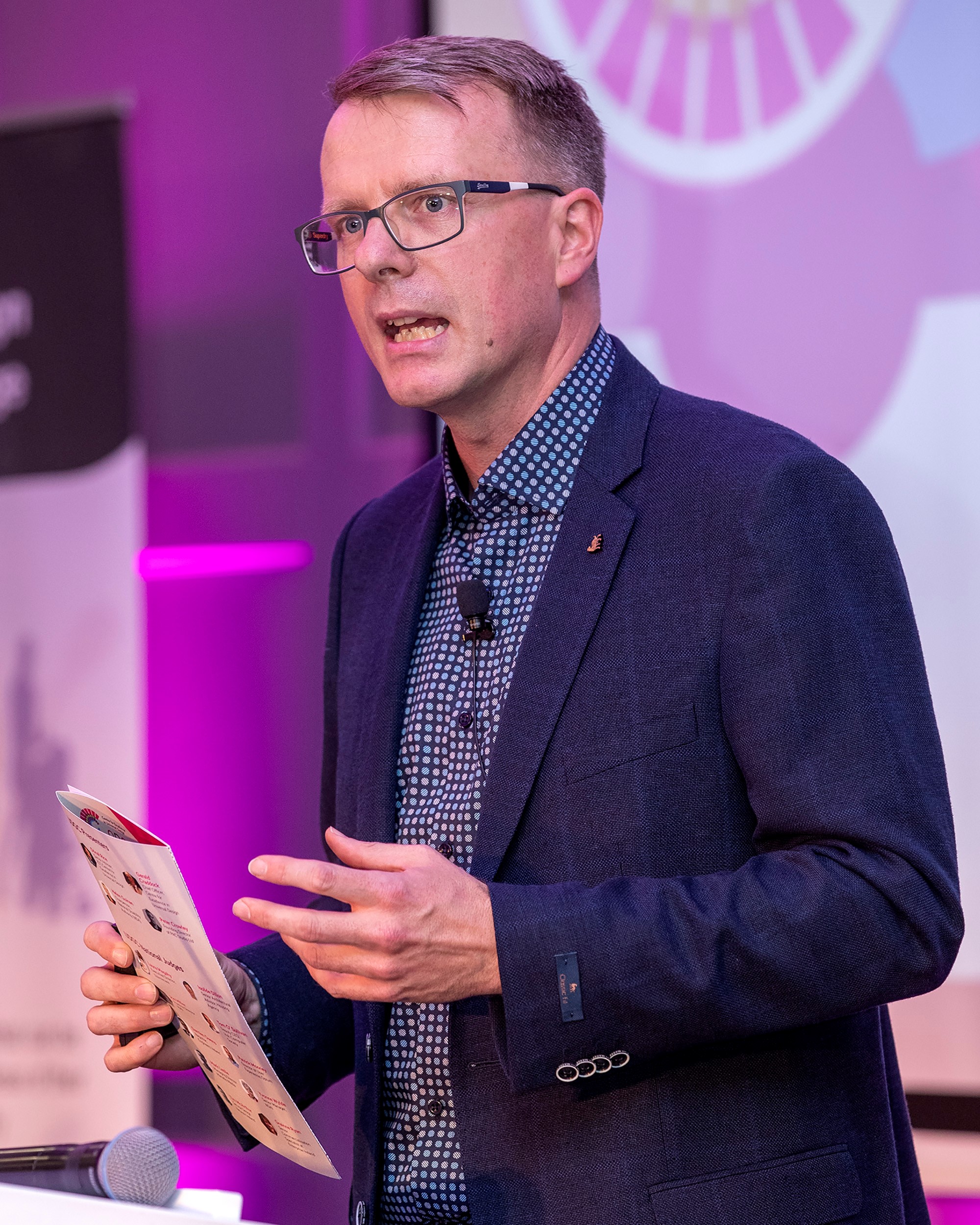 Mr. Dónal Rice
Mr. Dónal Rice is the senior design advisor on ICT for the Centre for Excellence in Universal Design at the National Disability Authority. In March 2018 he returned to the Centre from a secondment at the Irish Human Rights and Equality Commission. Dónal has worked on national and international guidelines, standards, policy and education projects with the NDA, the European Commission, and UN agencies such as UNESCO and the ITU. Dónal has been an evaluator of FP6, FP7 and more recently Horizon 2020 projects. Dónal is a part-time lecturer on disability law and policy with NUI Galway and on human rights and equality with the Institute of Public Administration.
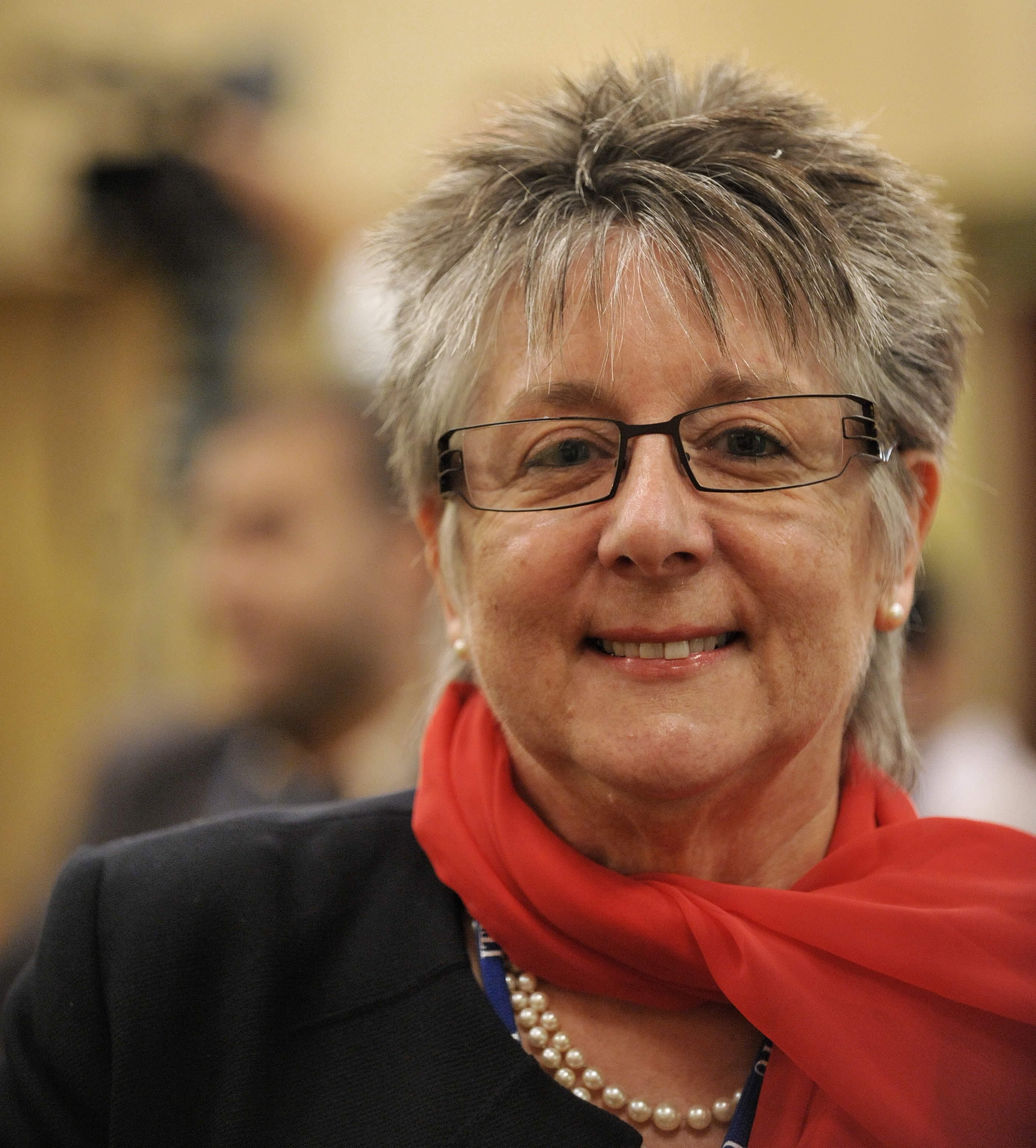 Ms Andrea Saks
Ms Andrea Saks who was born in 1947 is a known advocate for ICTs for persons with disabilities. She grew in a family of two deaf parents and assisted them from an early age as their interface with the hearing world: She was a human Relay Service from the age of two and was responsible for making doctors' appointments, arranging guests' visits and other appointments by using the telephone. Her father, the late Andrew Saks, the late Robert Weibrecht and the late James C. Marsters deaf themselves, were the first pioneers to create a telephone system that the deaf could use independently. The created a modem called the "Phonetype" when coupled to the normal telephone with using surplus teletypewriters as the printing created a deaf telephone system that spread throughout the world. These devices were the precursors of textphones and today's text messaging in our smart phones. She has also the British Government Post Office, OFTEL, and Deaf organizations and was granted a license in 1976 for the connection of those early text telephones on the regular British telephone network compatible with the USA. She was able to successfully lobby the US FCC to allow the first transatlantic text phone conversation over the voice telephone network (1975) showing international text telecommunications was viable and necessary for all. Her first involvement with ITU standardization activity started in 1991. In 2008 she was given the ITU World Telecommunication and Information Society Award and made a Laureate for her lifelong work in accessibility to telecommunications and ICTs for persons with Disabilities. . She also was largely responsible for the first ITU wide Accessibility Resolution created PP Resolution 175 rev Busan 2018. She currently is the Chairman of the ITU JCA-AHF, the Joint Coordination Activity on Accessibility and Human factors.
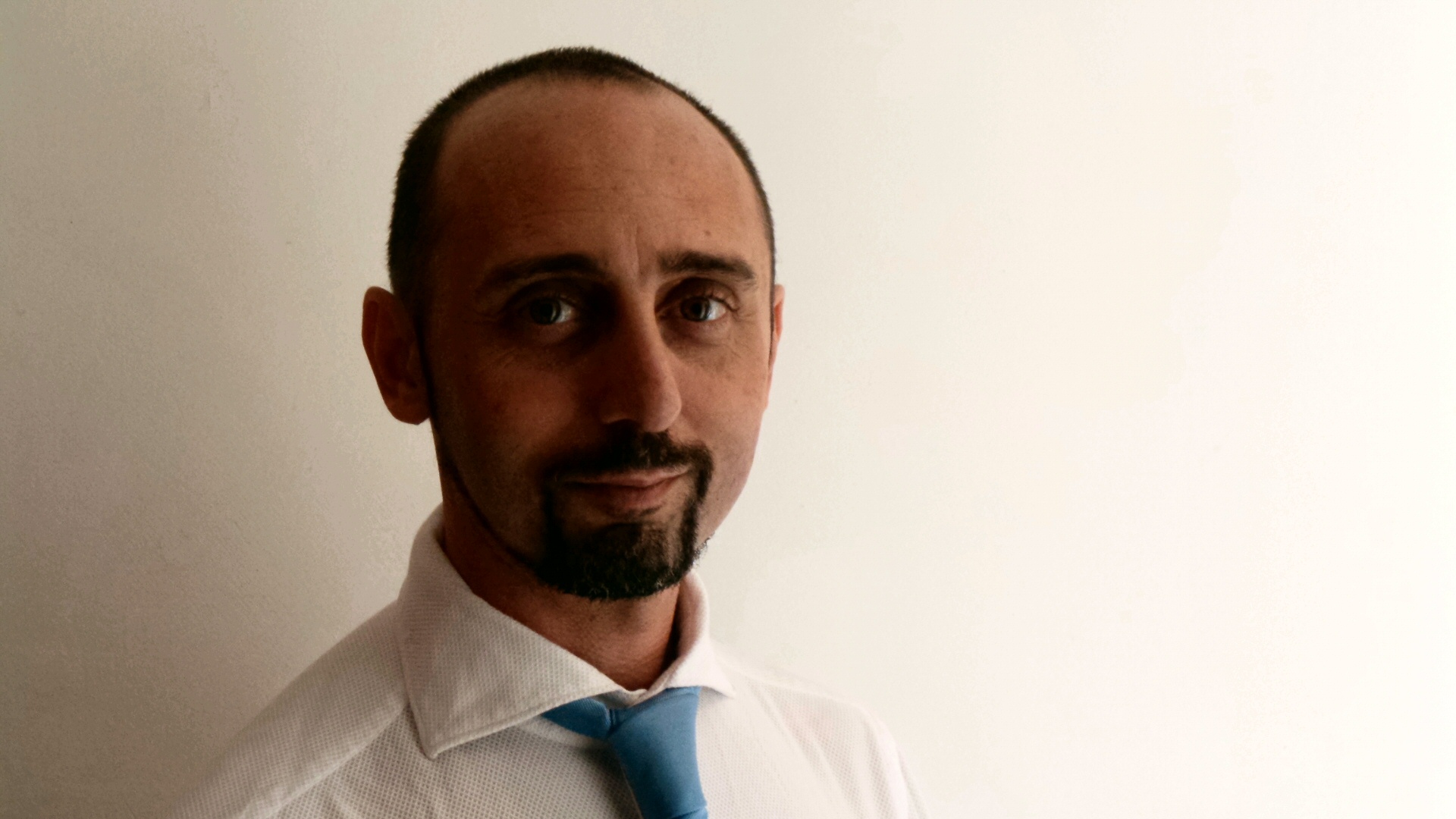 Mr. Roberto Scano
Mr. Roberto Scano, Web Accessibility Expert – CEN-CENELEC-ETSI JWG Accessibility Group Member
Roberto Scano works in accessibility field since 2002, when he joined inside W3C as AC Representative for IWA (International Web Association). He supported development of WCAG 2.0 and ATAG 2.0 as international guidelines and Italian accessibility law and technical rules (Stanca Act, 2004). Roberto participate in development of EN 301549 v. 2.1.2 and in fix of WCAG 2.1 issues (editorial issues). Roberto was nominated as Italian representative for European Web Accessibility Directive Expert Group (WADEX). He also coordinate the activities for localization into Italian language of WCAG 2.1 (first translation worldwide) and also EN 301549 v. 2.1.2. (first translation in Europe, also the first translation available free of charge for any user). Actually he is also president of e-Accessibility commission of national normative body for Italy (UNI).
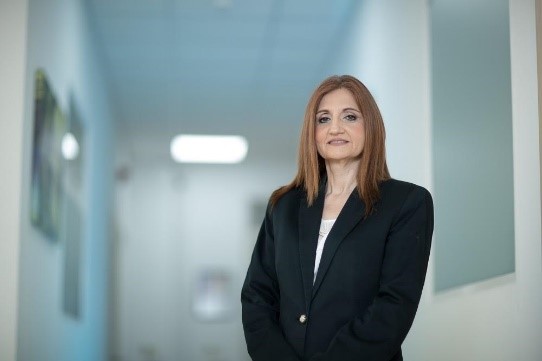 Ms Ruth Rose Sciberras has long experience in the social sector and as a professional social worker she worked in the sector for the past 22 years. She has worked and managed for a number of years the national agency– Agenzija Appogg, which primarily caters for children, youths and their families. She was also responsible for sectors of domestic violence victims, the Għabex shelter service (a night shelter for women who have experienced domestic violence) and children protection. She also currently chairs the Ministerial committee for Positive Upbringing.
Ms Ruth Rose Sciberras has long experience in the social sector and as a professional social worker she worked in the sector for the past 22 years. She has worked and managed for a number of years the national agency– Agenzija Appogg, which primarily caters for children, youths and their families. She was also responsible for sectors of domestic violence victims, the Għabex shelter service (a night shelter for women who have experienced domestic violence) and children protection. She also currently chairs the Ministerial committee for Positive Upbringing.
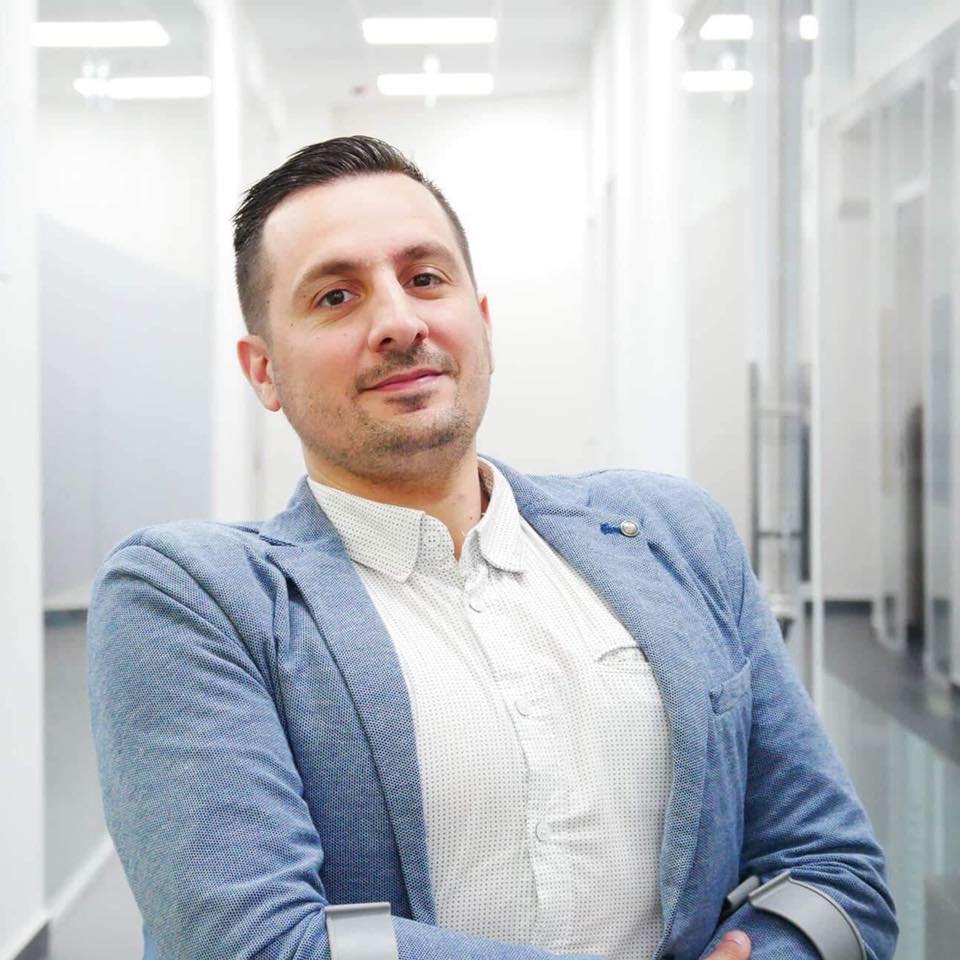 Mr. Oliver Scicluna was born in Saint Luke's hospital on the 14th July, 1986. He was baptised in the Church of Saint Lawrence, Vittoriosa. Mr Scicluna attended Kalkara Primary school, in which later on he started attending De La Salle College. He continued his studies on Computer Software Programming at MCAST and later on graduated with a degree in software programming from Cambridge University. Mr Scicluna graduated with a degree in Youth and Community Studies from the University of Malta. He graduated with a Masters in Business Administration.
Mr. Oliver Scicluna was born in Saint Luke's hospital on the 14th July, 1986. He was baptised in the Church of Saint Lawrence, Vittoriosa. Mr Scicluna attended Kalkara Primary school, in which later on he started attending De La Salle College. He continued his studies on Computer Software Programming at MCAST and later on graduated with a degree in software programming from Cambridge University. Mr Scicluna graduated with a degree in Youth and Community Studies from the University of Malta. He graduated with a Masters in Business Administration.
He founded and presided over several NGO's such as Hip Hop Malta and Breaking Limits. Oliver worked on several projects which touched varies sectors such as youth, culture, inmates, disability, and immigration. He served as the Chairman of the Kumitat Azzjoni Socjeta Gusta, which was a committee who served as an advisory for the preparation of the National Disability Policy. On the 28th of March 2014 he was appointed as the Chairman of the National Commission for Persons with a Disability. Currently, he is also currently serving on several councils and boards at a National level. Oliver is also the deputy Chairperson of FITA. Oliver was appointed as the first Commissioner for the Rights of Persons with Disability on June 2016.
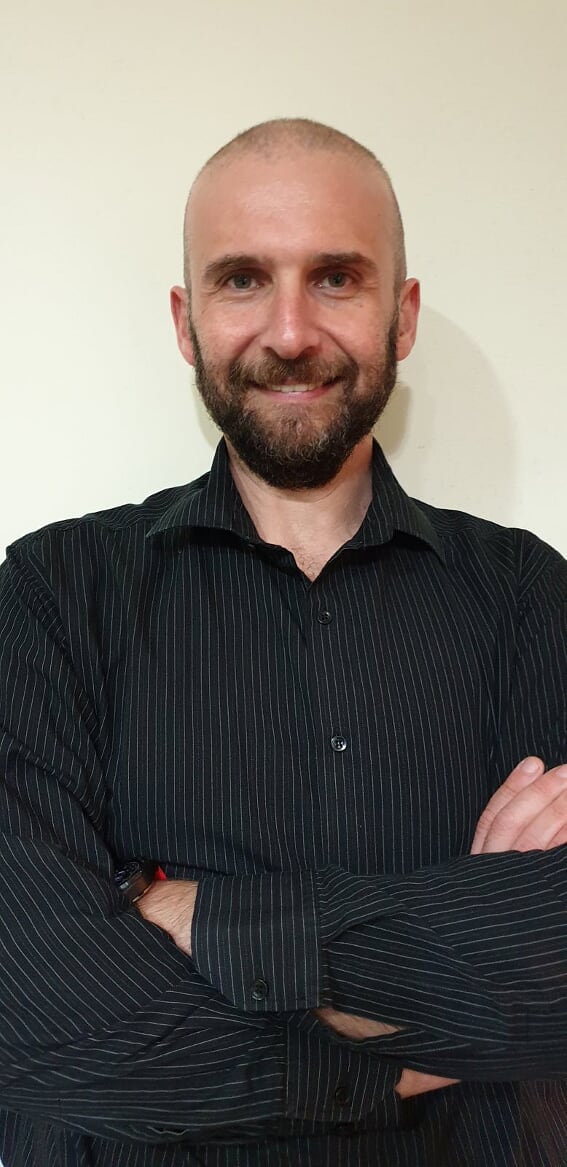 Mr. Joseph Seychell
Mr. Joseph Seychell joined the Malta Communications Authority (‘MCA’) in 2016. He is Technologies and IT Manager of the Information Management and Development Unit and amongst others, he is responsible for the national implementation and management of a number of technology oriented regulations and directives. These include the eCommerce Directive, the Regulation on Electronic Identification, Authentication and Trust Services (‘eIDAS’) and the Directive on making the websites and mobile apps of public sector bodies more accessible. Joseph also manages a team of IT professionals who handle the day to day administration of the authority’s IT systems providing the MCA with the supporting technologies needed to carry out its regulatory mandate.
Joseph has been working in the IT industry for more than twenty years in a number of technical and consultative roles. He was employed at local and international technology organisations and has delivered various projects on a wide array of systems including directory services, virtualisation, backup solutions and cloud migrations. Joseph holds a number of vendor technical certifications and a degree in Information Systems.
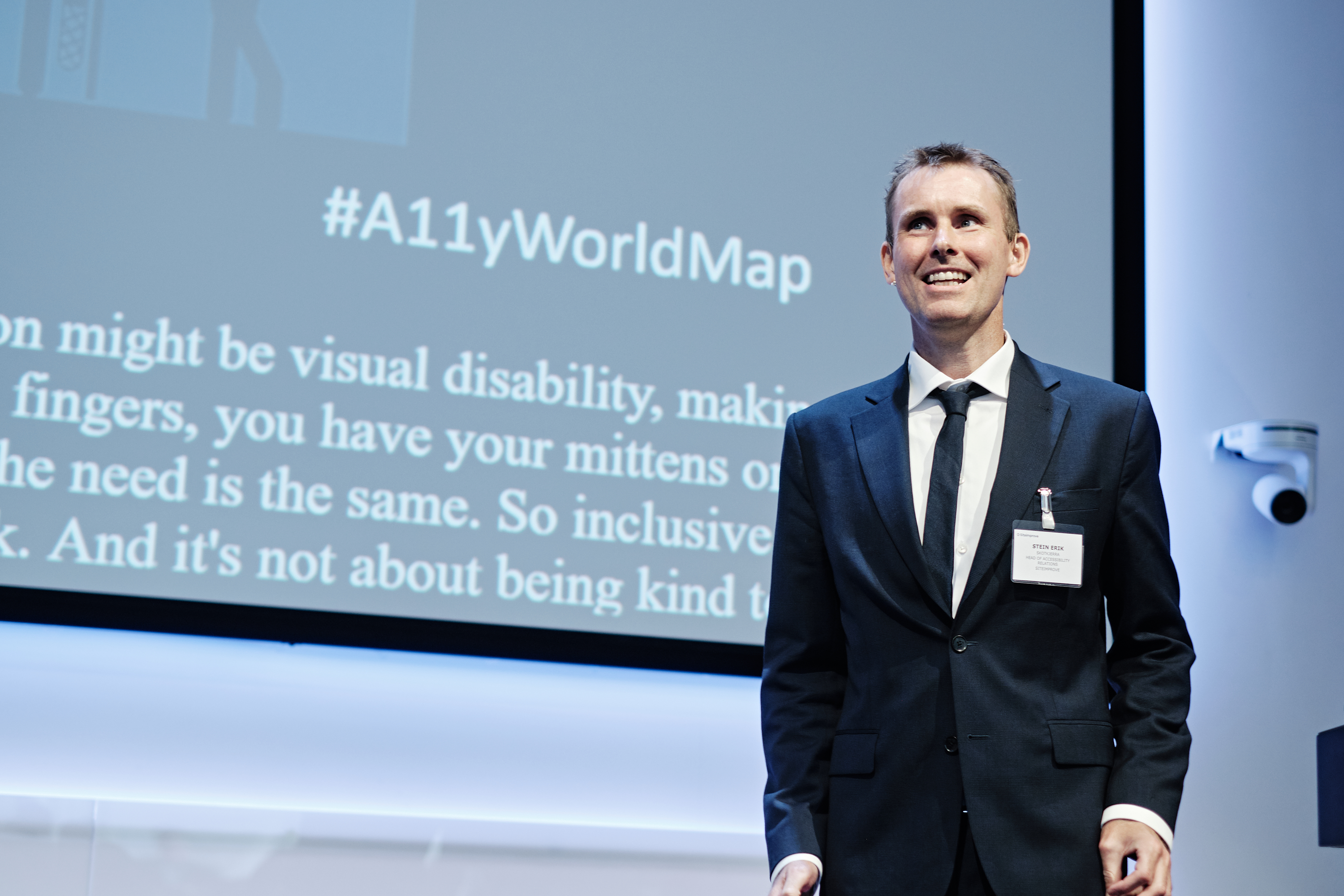
Mr. Stein Erik Skotkjerra
Mr. Stein Erik Skotkjerra
A passionate advocate of inclusive ICT design and known for always taking a people-centric approach in his work, Stein Erik Skotkjerra has been providing companies and organizations, public and private, with the mindset, strategies and tools needed to succeed in making digital experiences more inclusive for more than 10 years. Despite a deep passion for technology, Stein’s career, spanned over 20 years, encompasses a truly wide range of specialties includingdeveloping assistive technologies for people with visual impairments, founding his own accessibility consulting company, and working as a strategic management consultant to boards and C-Level management considering inclusive design of ICT. Currently Stein works as Siteimprove's Head of Accessibility Relations, where he serves as the company’s overall global strategic advisor in all areas related to web accessibility, changing political climates and inclusive strategy. Alongside his full-time role Stein is an active participant within various accessibility standards committees throughout the Nordic region, and enjoys public speaking, having been an internationally recognized speaker and guest lecturer within the field for many years.
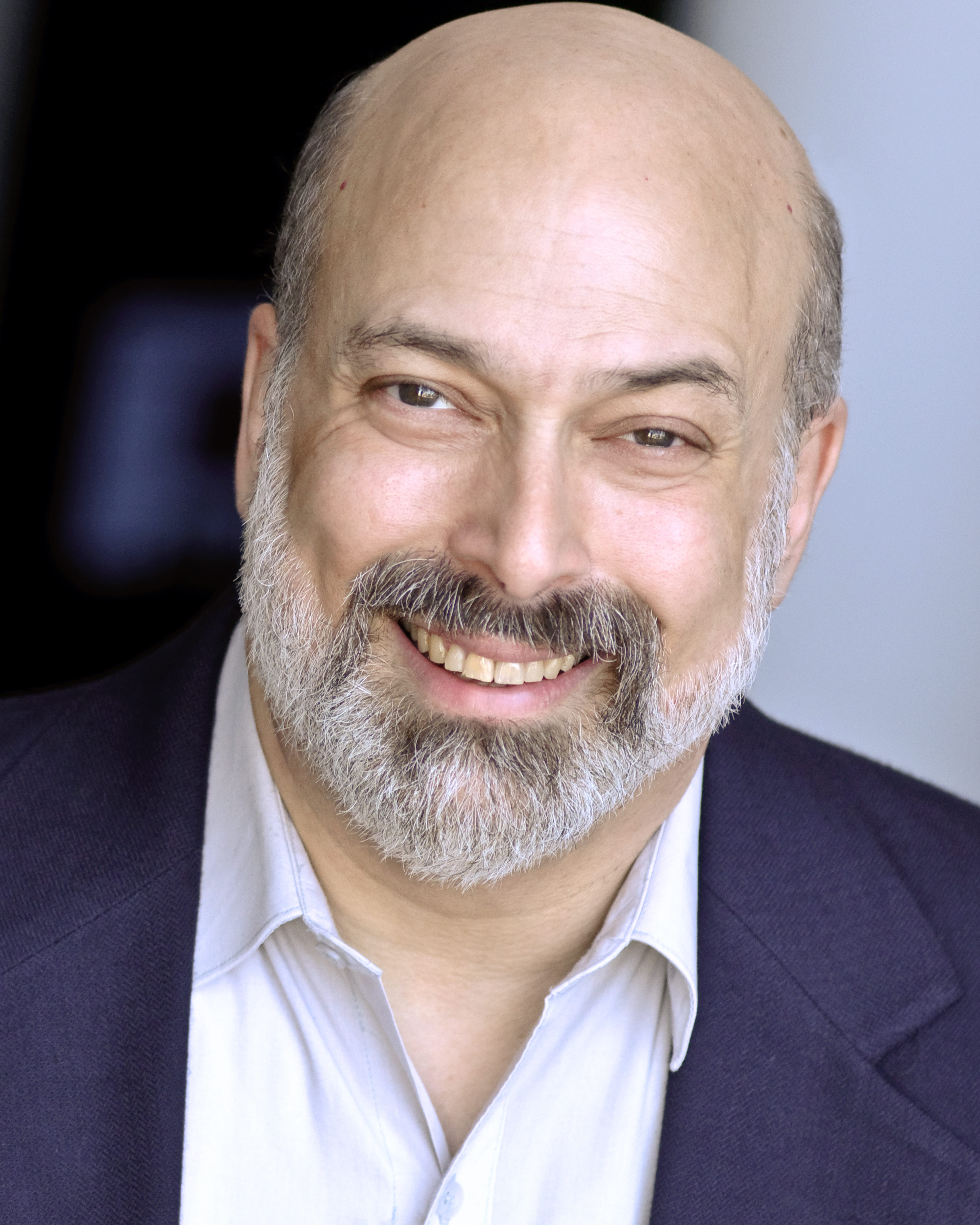 Dr. Joel Snyder is known internationally as one of the world’s first “audio describers,” a pioneer in the field of Audio Description, a translation of visual images to vivid language for the benefit, primarily, of people who are blind or have a vision impairment. Since 1981, he has introduced audio description techniques in over 40 states and 62 countries and has made hundreds of live events, media projects and museums accessible. The American Council of the Blind published Dr. Snyder’s book, The Visual Made Verbal – A Comprehensive Training Manual and Guide to the History and Applications of Audio Description, now available as an audio book voiced by Dr. Snyder, in screen reader accessible formats, and in English, Polish, Russian and Portuguese. Dr. Snyder is the President of Audio Description Associates, LLC (www.audiodescribe.com) and he serves as the Director of the Audio Description Project of the American Council of the Blind (www.acb.org/adp). Dr. Snyder is a member of Actors’ Equity Association and AFTRA-SAG and a 20-year veteran of work as a director and arts specialist at the National Endowment for the Arts. His PhD in audiovisual translation/audio description is from the Universitat Autonoma de Barcelona.
Dr. Joel Snyder is known internationally as one of the world’s first “audio describers,” a pioneer in the field of Audio Description, a translation of visual images to vivid language for the benefit, primarily, of people who are blind or have a vision impairment. Since 1981, he has introduced audio description techniques in over 40 states and 62 countries and has made hundreds of live events, media projects and museums accessible. The American Council of the Blind published Dr. Snyder’s book, The Visual Made Verbal – A Comprehensive Training Manual and Guide to the History and Applications of Audio Description, now available as an audio book voiced by Dr. Snyder, in screen reader accessible formats, and in English, Polish, Russian and Portuguese. Dr. Snyder is the President of Audio Description Associates, LLC (www.audiodescribe.com) and he serves as the Director of the Audio Description Project of the American Council of the Blind (www.acb.org/adp). Dr. Snyder is a member of Actors’ Equity Association and AFTRA-SAG and a 20-year veteran of work as a director and arts specialist at the National Endowment for the Arts. His PhD in audiovisual translation/audio description is from the Universitat Autonoma de Barcelona.
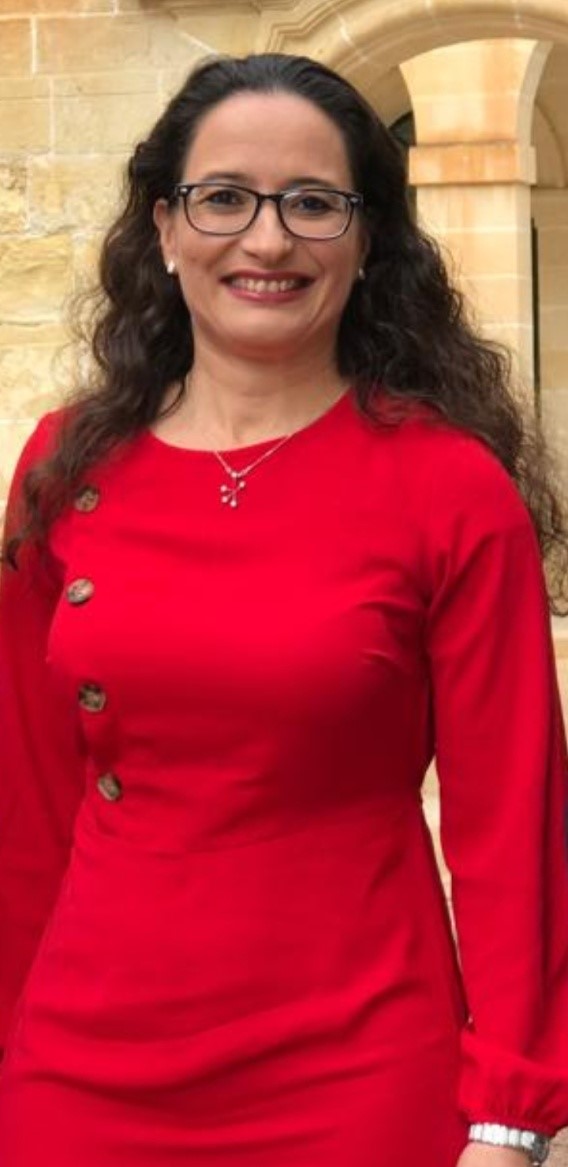 Dr Joanna Spiteri is the Chief Executive Officer at Malta Broadcasting Authority. She obtained her PhD at the University of Stirling in Scotland. Her research focused on achieving news impartiality in the Maltese TV programmes. For 5 years she lectured at the University of Malta in media and gender studies. She read for a Masters Degree in Arts at the University of Malta focusing her research on the portrayal of gender issues in news bulletins. She started her career as a journalist at Public Broadcasting Services Ltd and produced current affairs and educational programmes for radio and television. In November 2015 she co-authored a study published in a book entitled Quality in TV broadcasting – The televiewers’ perspective which analysed what viewers think on the quality in local programming. During these last two years, she was chosen to be part of the Awards Advisory Group for the AIBs (Association of Interantional Broadcasters) awards which is one of the most respected competitons in the global media calendar. During the Maltese EU Presidency, she chaired the working group at the European Council which discussed the AVMS Directive. These discussion led to a general approach at the EU Council during the Maltese Presidency. She is also a member of the Press Ethics Commission.
Dr Joanna Spiteri is the Chief Executive Officer at Malta Broadcasting Authority. She obtained her PhD at the University of Stirling in Scotland. Her research focused on achieving news impartiality in the Maltese TV programmes. For 5 years she lectured at the University of Malta in media and gender studies. She read for a Masters Degree in Arts at the University of Malta focusing her research on the portrayal of gender issues in news bulletins. She started her career as a journalist at Public Broadcasting Services Ltd and produced current affairs and educational programmes for radio and television. In November 2015 she co-authored a study published in a book entitled Quality in TV broadcasting – The televiewers’ perspective which analysed what viewers think on the quality in local programming. During these last two years, she was chosen to be part of the Awards Advisory Group for the AIBs (Association of Interantional Broadcasters) awards which is one of the most respected competitons in the global media calendar. During the Maltese EU Presidency, she chaired the working group at the European Council which discussed the AVMS Directive. These discussion led to a general approach at the EU Council during the Maltese Presidency. She is also a member of the Press Ethics Commission.
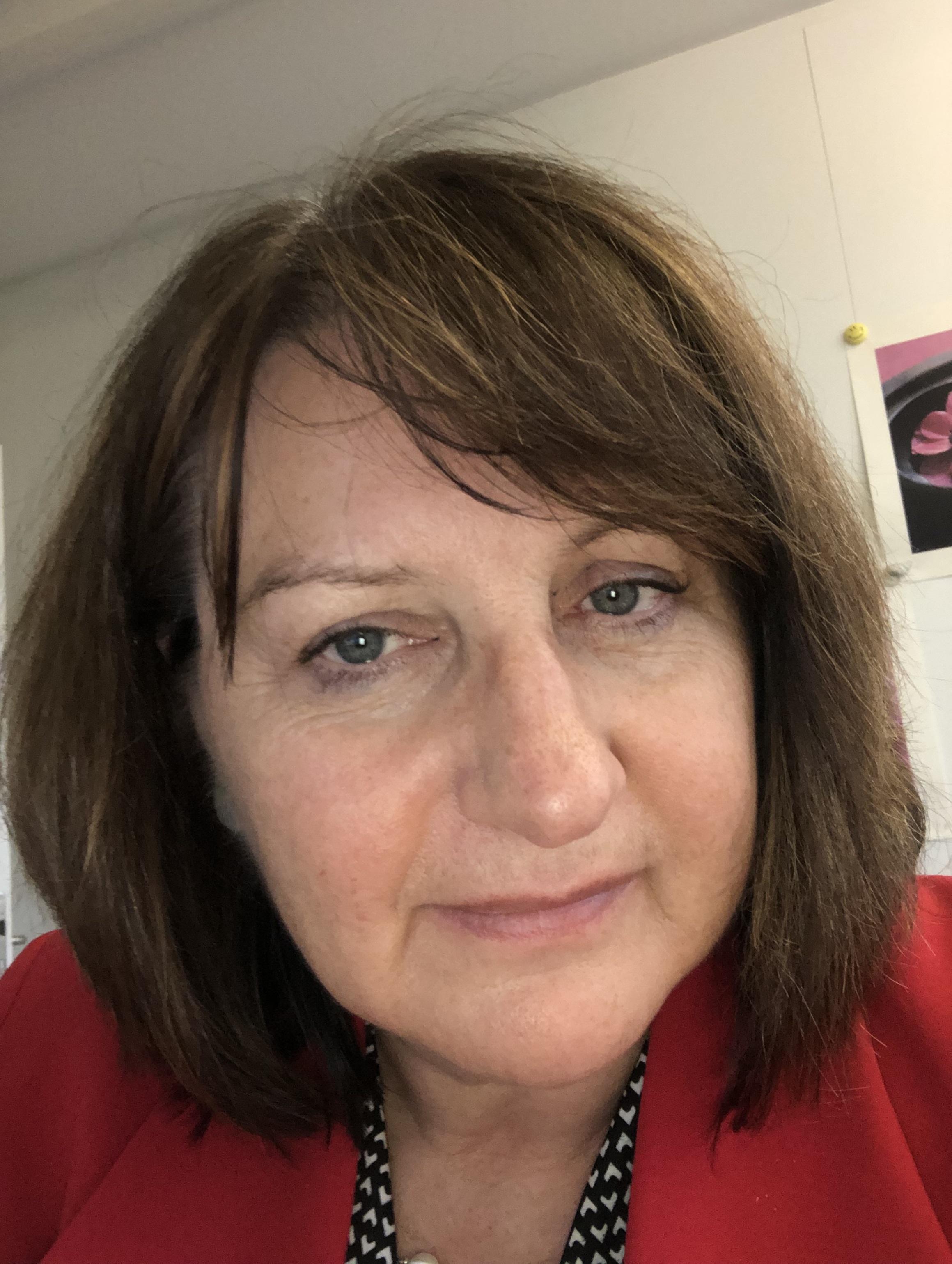 Gudrun Stock, European Commission
Gudrun Stock, European Commission
Gudrun has more than 25 years of experience of working in the private sector and EU Institutions, in a wide variety of fields ranging from audit, law, human resources and statistics to digital cultural heritage, data and digital inclusion. Currently, Gudrun is Deputy Head of Unit for Accessibility, Multilingualism and Safer Internet in one of the largest Directorate Generals of the European Commission (DG CONNECT –Communications Networks, Content & Technology). Her ambition is to contribute to a more accessible, secure and inclusive Digital Single Market, where no one is left behind.
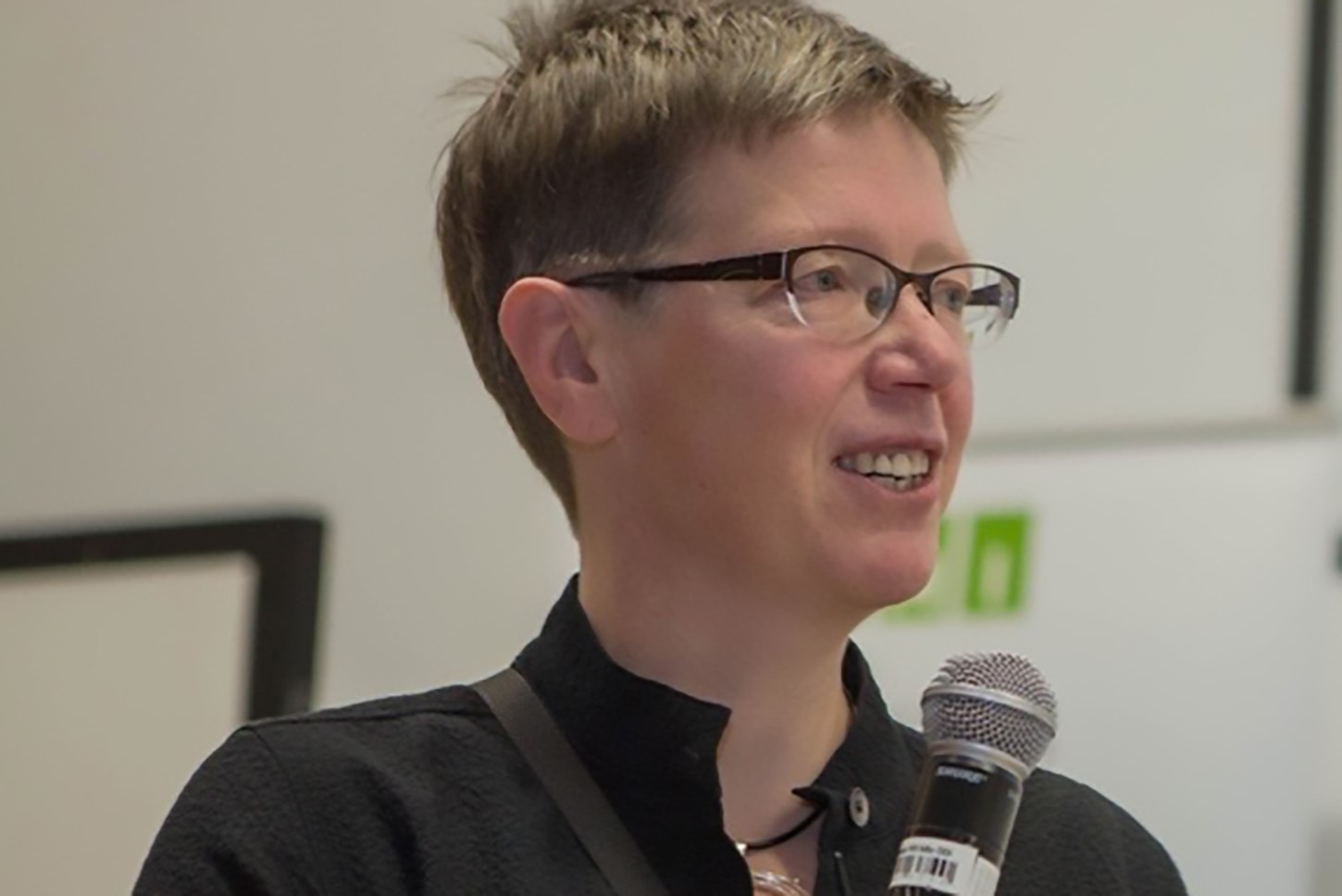 Ms. Jutta Treviranus is the Director of the Inclusive Design Research Centre (IDRC) and professor in the faculty of Design at OCAD University in Toronto (http://idrc.ocadu.ca). Jutta established the IDRC in 1993 as the nexus of a growing global community that proactively works to ensure that our digitally transformed and globally connected society is designed inclusively. Dr. Treviranus also heads the Inclusive Design Institute, a multi-university regional centre of expertise (https://inclusivedesign.ca). Jutta founded an innovative graduate program in inclusive design at OCAD University. She leads international multi-partner research networks that have created broadly implemented innovations that support digital equity e.g., Fluid Project (https://fluidproject.org), FLOE (https://floeproject.org ), and many others. Jutta’s work has been attributed as the impetus for corporate adoption of more inclusive practices in large enterprise companies such as Microsoft.
Ms. Jutta Treviranus is the Director of the Inclusive Design Research Centre (IDRC) and professor in the faculty of Design at OCAD University in Toronto (http://idrc.ocadu.ca). Jutta established the IDRC in 1993 as the nexus of a growing global community that proactively works to ensure that our digitally transformed and globally connected society is designed inclusively. Dr. Treviranus also heads the Inclusive Design Institute, a multi-university regional centre of expertise (https://inclusivedesign.ca). Jutta founded an innovative graduate program in inclusive design at OCAD University. She leads international multi-partner research networks that have created broadly implemented innovations that support digital equity e.g., Fluid Project (https://fluidproject.org), FLOE (https://floeproject.org ), and many others. Jutta’s work has been attributed as the impetus for corporate adoption of more inclusive practices in large enterprise companies such as Microsoft.
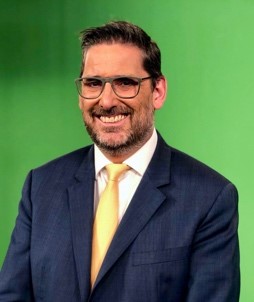 Mr. Mark Wheatley
Mr. Mark Wheatley, President, European Union of the Deaf (EUD)
Mark Wheatley has operated as the Executive Director of the European Union of the Deaf (EUD) since 2007. Under his leadership, EUD has grown to be a more visible organisation, both in terms of its external (social) media coverage and its internal member communication. He is co-author of the EUD book “Sign Language Legislation in the European Union” (2012). Wheatley is the former Managing Director of Red Lizard Ltd, a Deaf-led media design company. He has been a member of the World Federation of the Deaf (WFD) Expert Group on Human Rights. Furthermore, he was involved as an expert in the World Health Organisation and World Bank 2012 World Report on Disability to ensure that sign language users were adequately included both in terms of terminology and accuracy of information. He also contributed to various academic publications on the topic of sign language and technological development as an enabler of deaf rights.
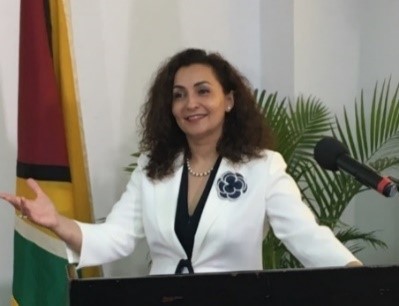
Ms. Roxana WIDMER-ILIESCU has been working in the Development Sector of the International Telecommunication Union (ITU) for over 20 years, primarily in the area of digital inclusion. Roxana has extensive experience and expertise in contributing to achieve inclusiveness in the digital era for all people, including those with specific needs. As Senior Programme Officer in charge of digital inclusion , Roxana promotes ICT accessibility as a fundamental enabler of the inclusion and empowerment of all people regardless of their gender, age, ability, or location. In her work she applies a holistic approach in the implementation of digital inclusion. In her capacity, she advices ITU Members in their efforts to create inclusive digital ecosystem in their respective countries and regions, as well as supports them in implementing policies and strategies to ensure a full and effective participation of all people in the digital society and the digital economy. In doing so, the aim is to ensure that future smart societies are fully accessible to everyone and benefit all people equally to guarantee that no one is left behind in the digital age. Roxana holds Master’s degrees in International Law and in Strategic Management of Telecommunications. She is fluent in English, French, Romanian and Spanish.
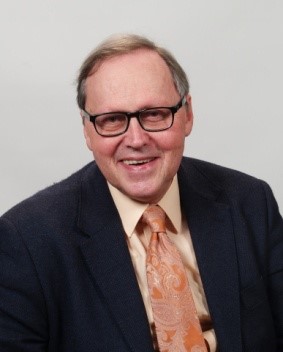 Dr. David Wood
Dr. David Wood has chaired standards groups in the ITU and DVB for many years. He led the work that resulting in the ITU specifications for digital television, high definition television, and ultra-high definition television. More recently he led the DVB work analysing Virtual Reality systems. He currently is a co-chair of the ITU IRG-AVA group which is examining the possibilities for common access systems for all media, broadcast, broadband, internet, and cable, and the ITU-R on audio renderers. He is Consultant, EBU Technology and Innovation.
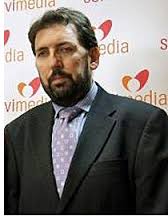 Mr. David Zanoletty
Mr. David Zanoletty holds an Msc Degree in Computing Engineering from Seville University and a Master Degree in Knowledge Engineering for Universidad Politécnica of Madrid. At present, he is the Manager of the Accessible Technology and R&D Department at Fundación ONCE. Previously, he worked for 10 years in Technosite (currently named as Ilunion T&A) as Technical Director. He has experience in research and development of software applications for accessibility. He is currently involved in projects leading the social inclusion of people with disabilities through the ICT. Moreover he has been the responsible of several editions of the International Congress on Design, Research Networks, and Technology for All – DRT4ALL, which has been held in Madrid and Málaga from 2011 to 2019.